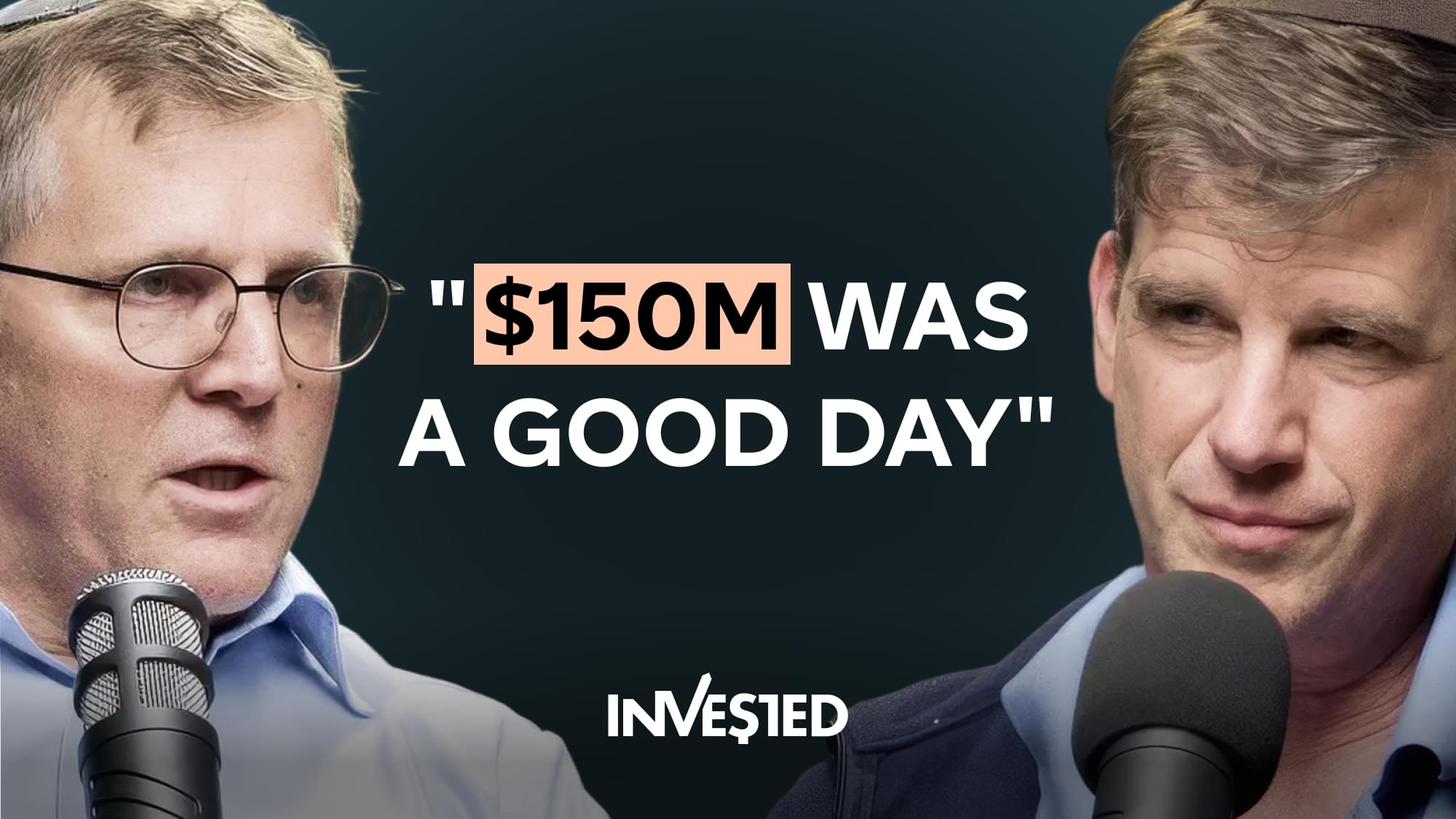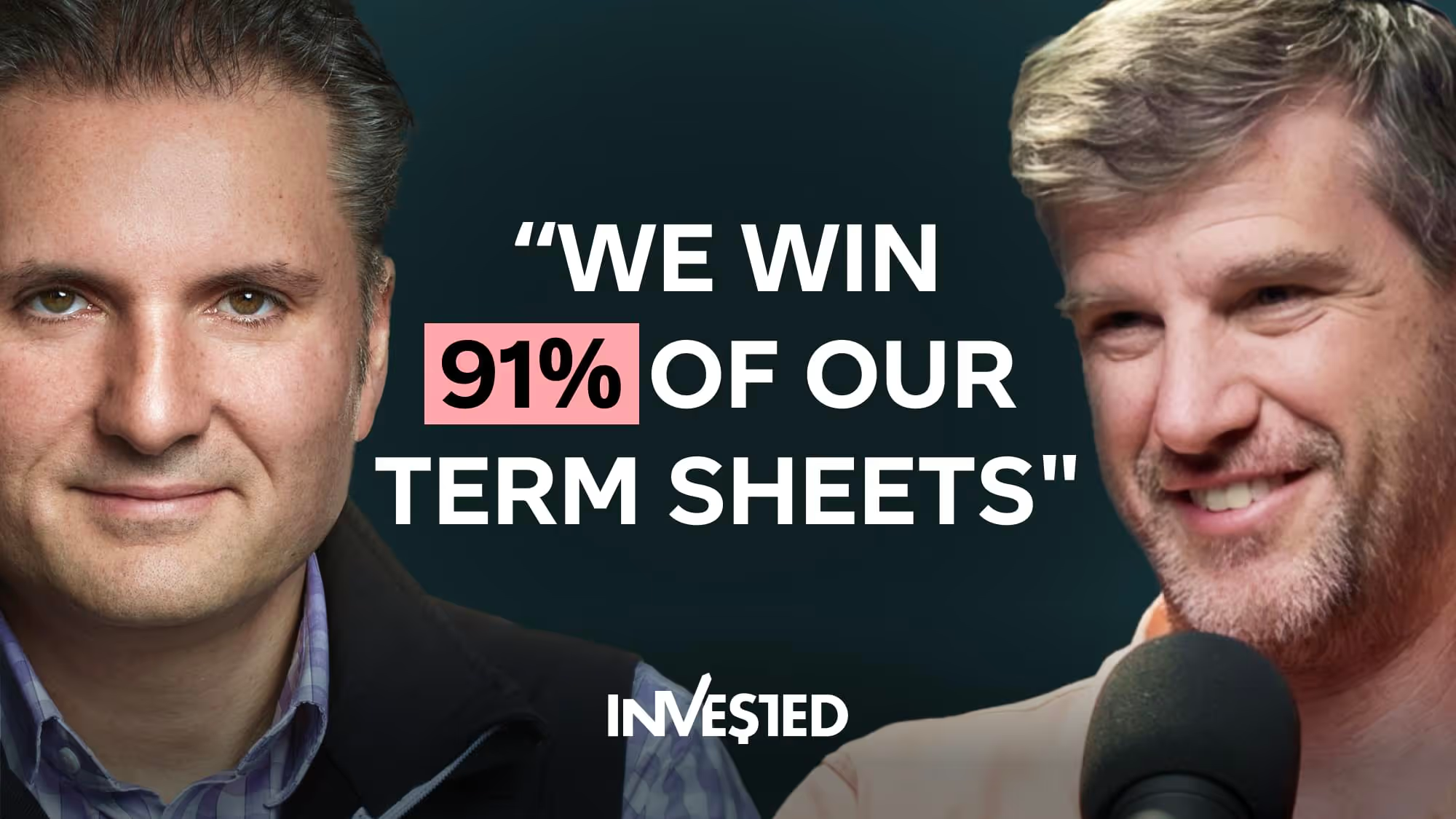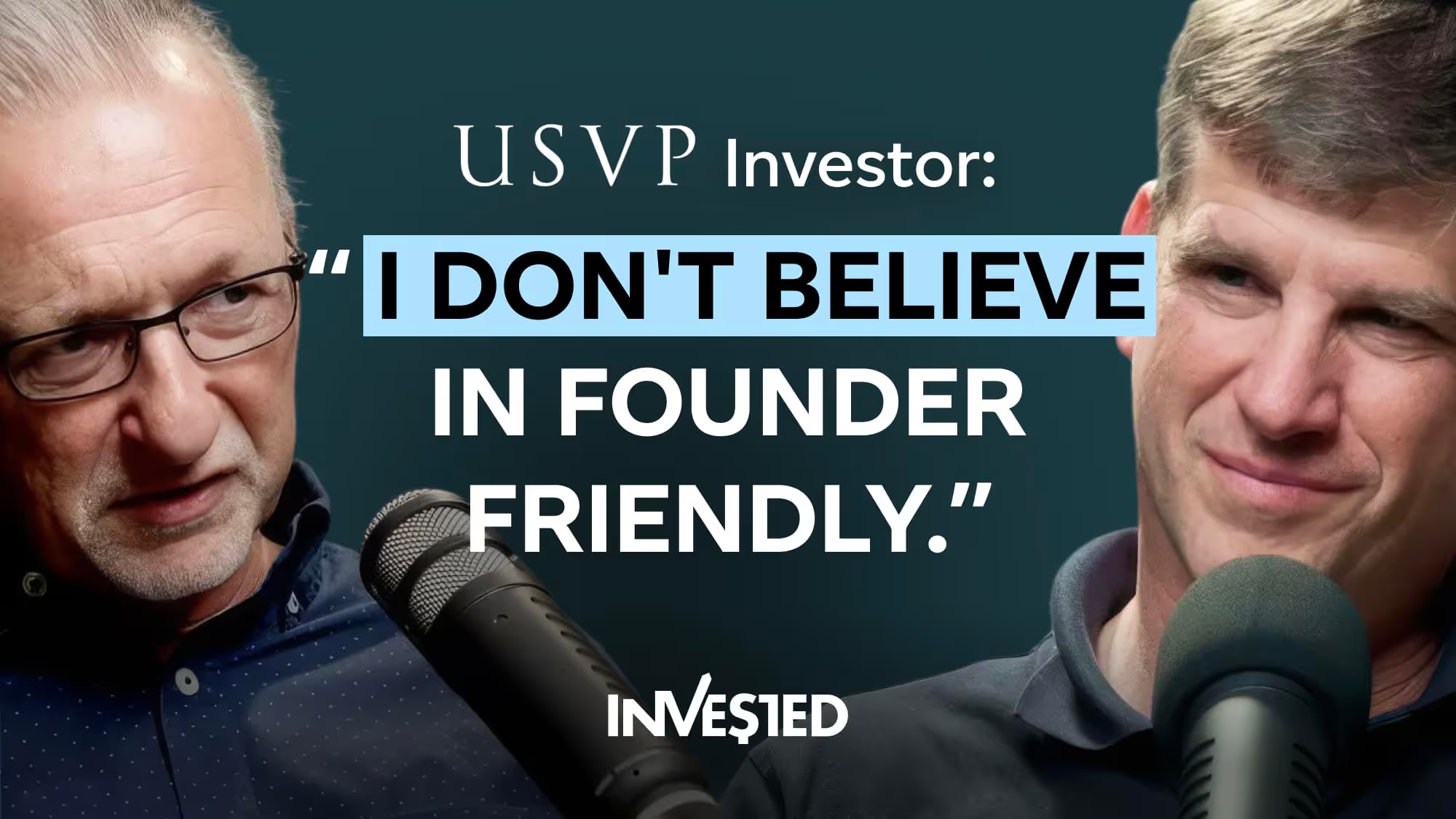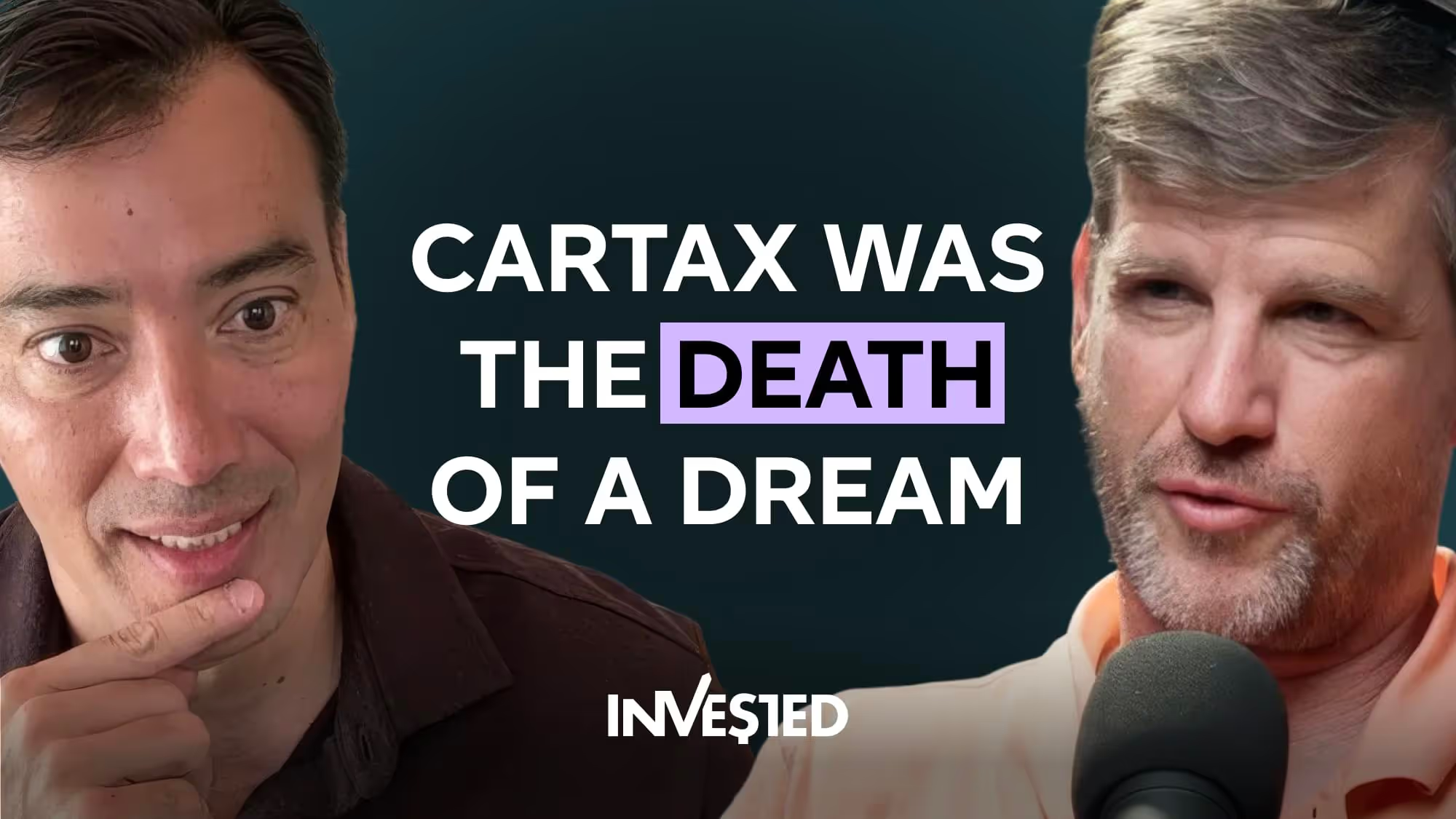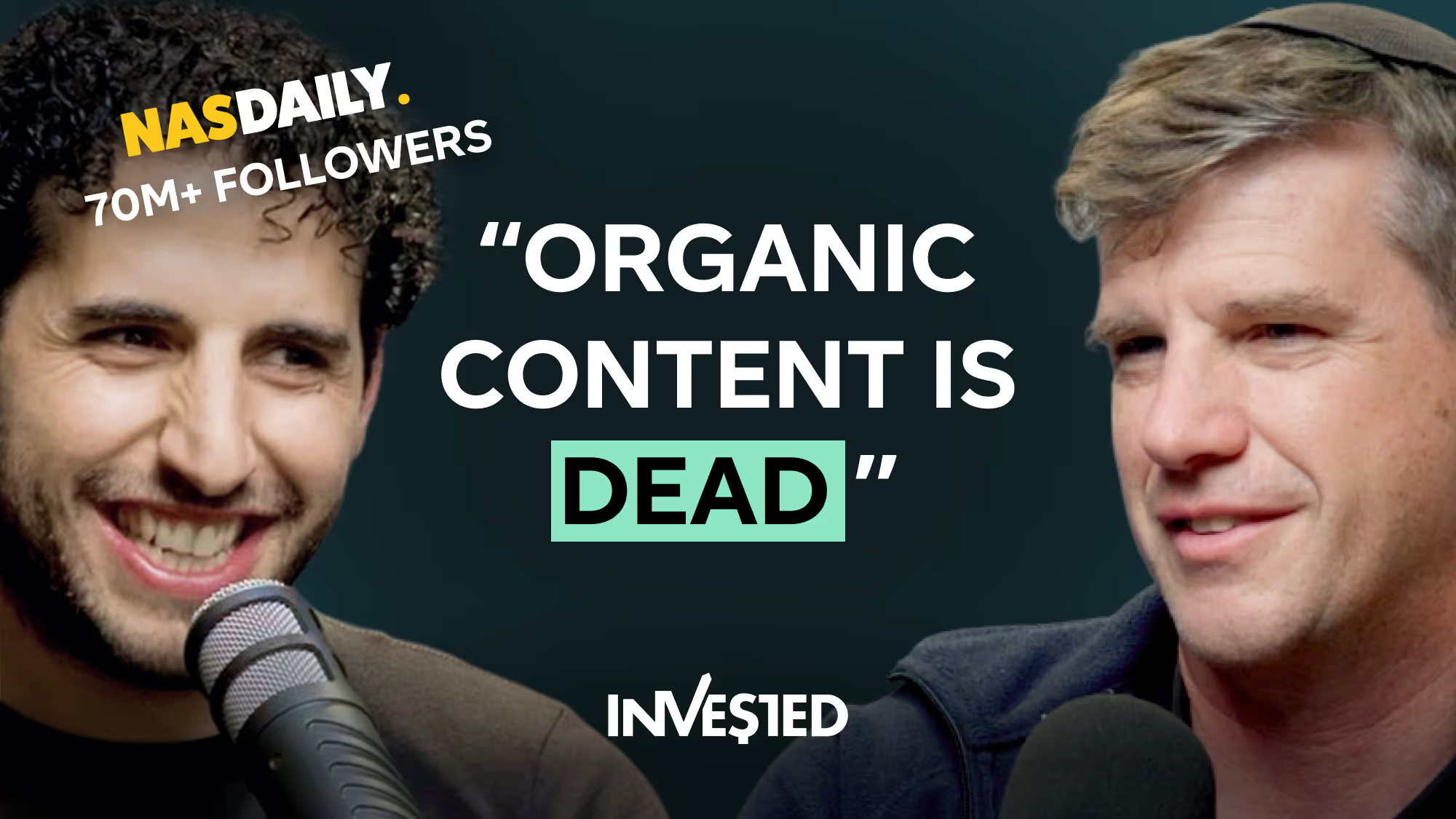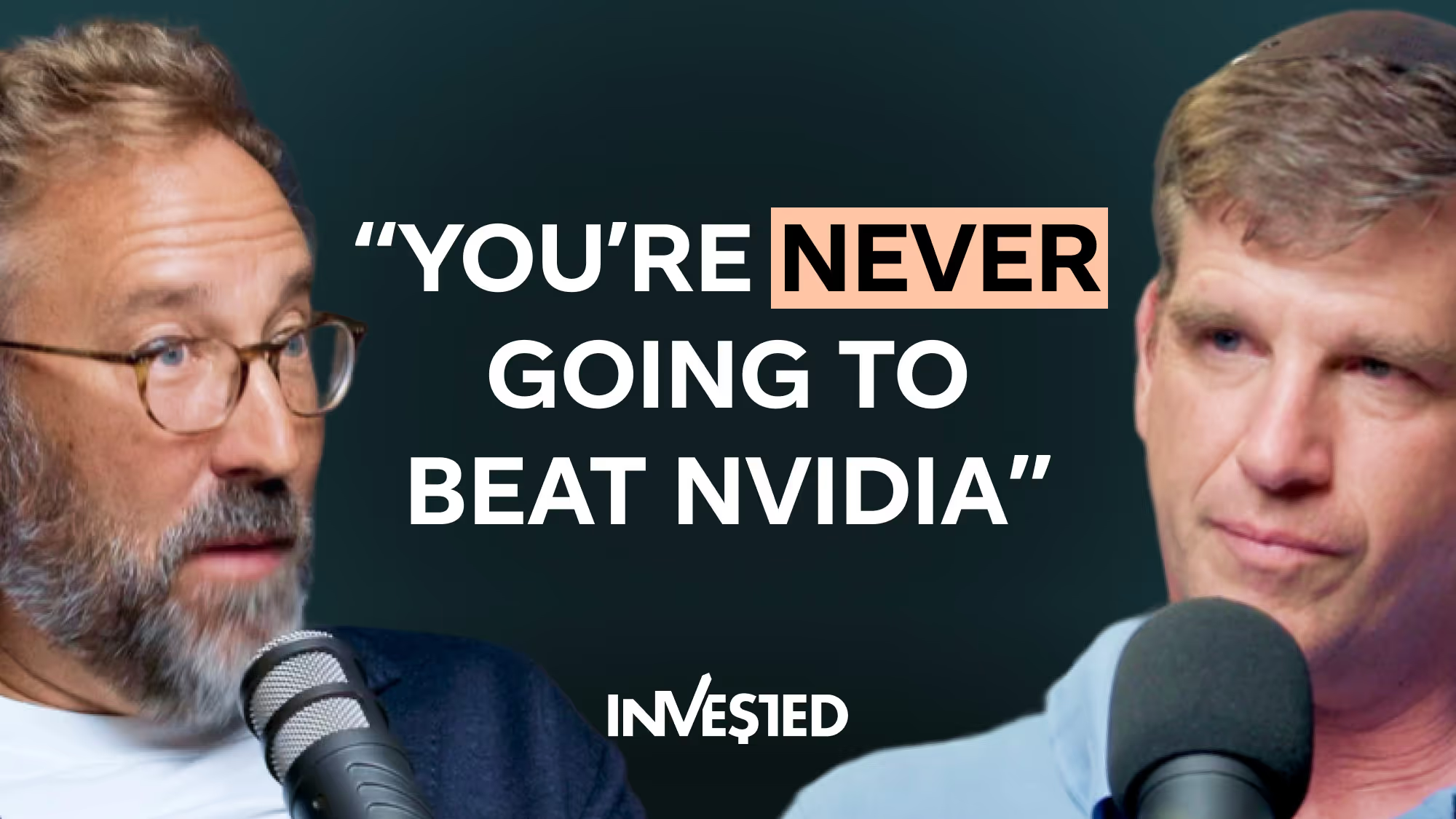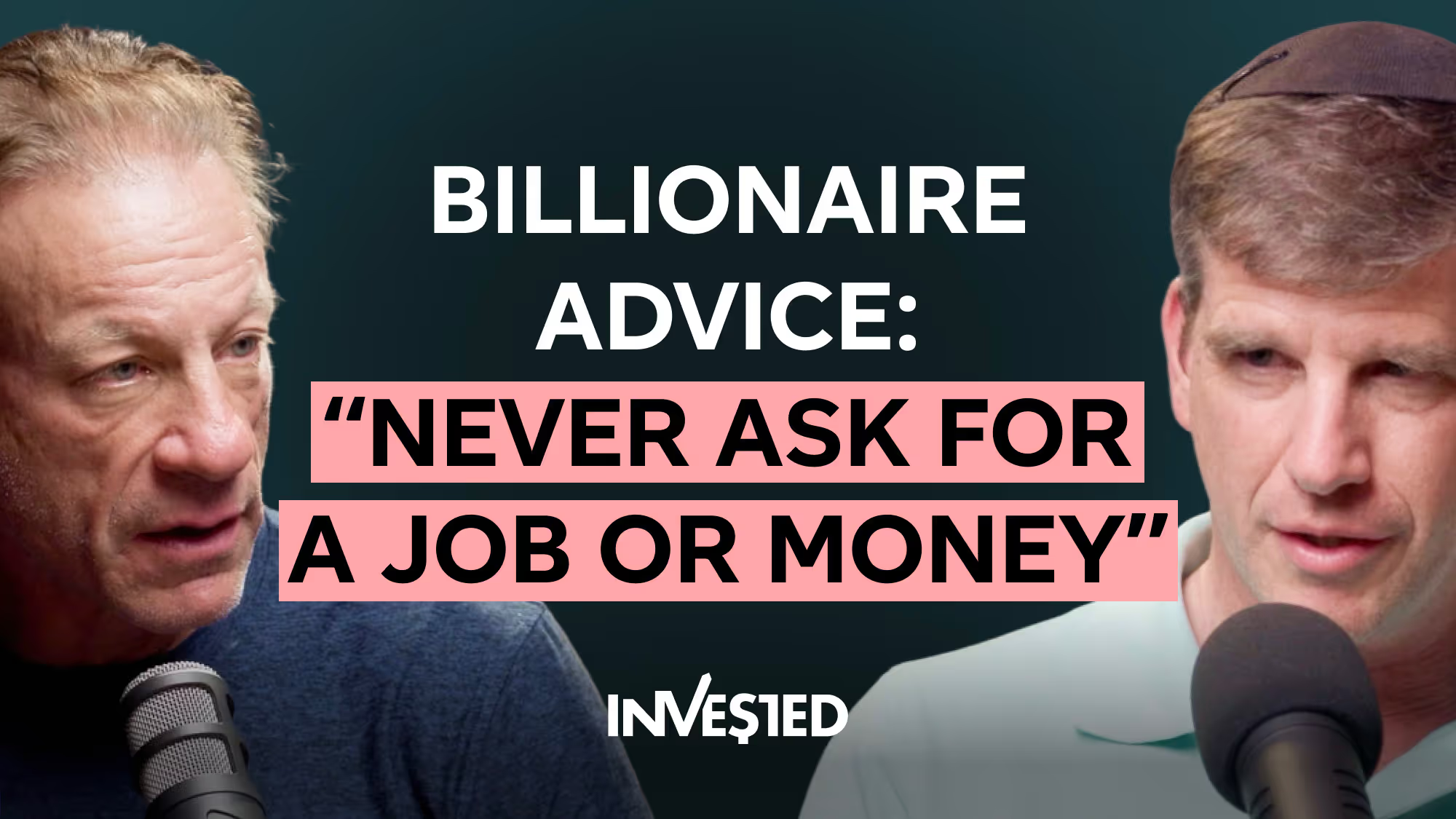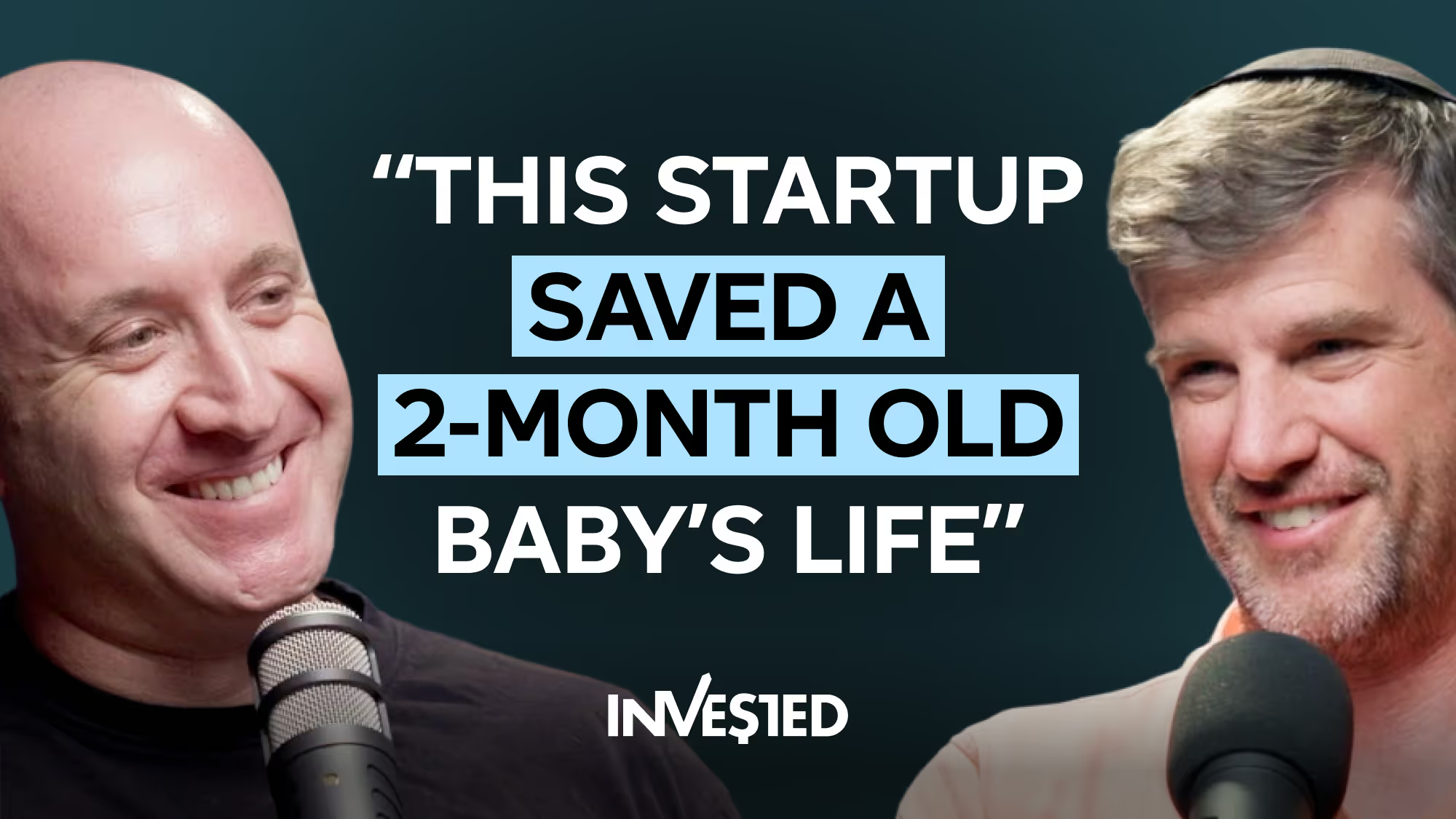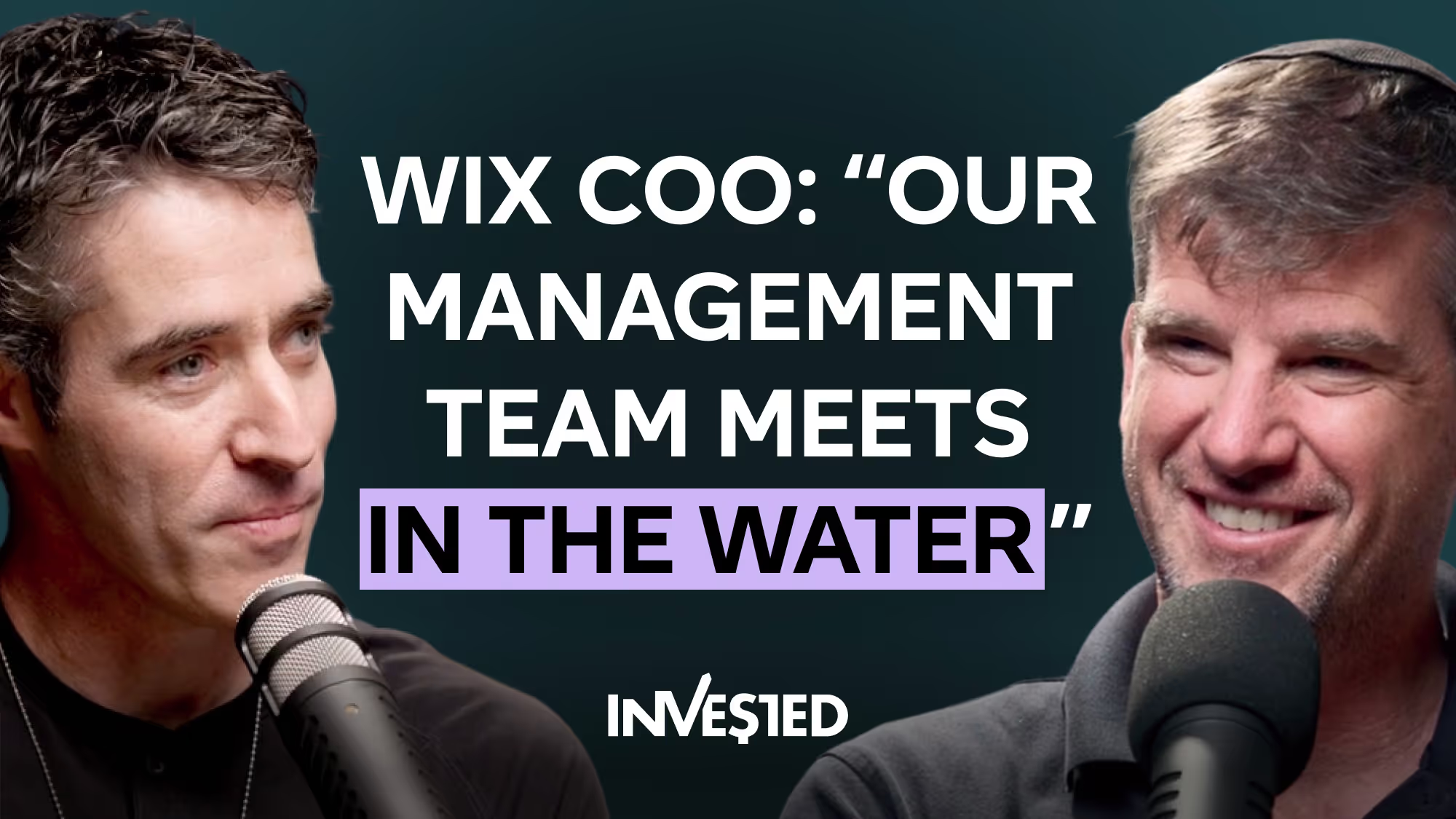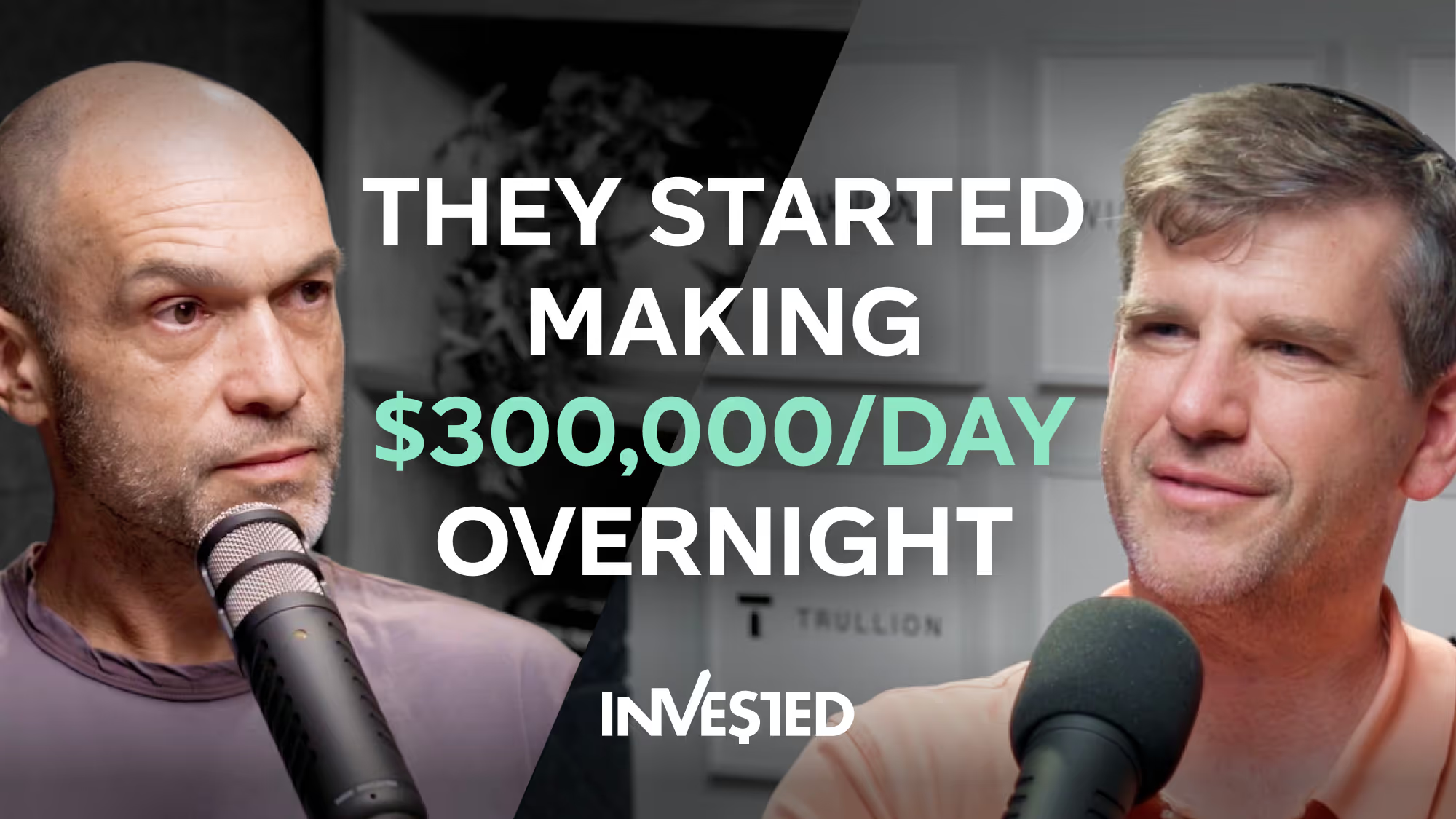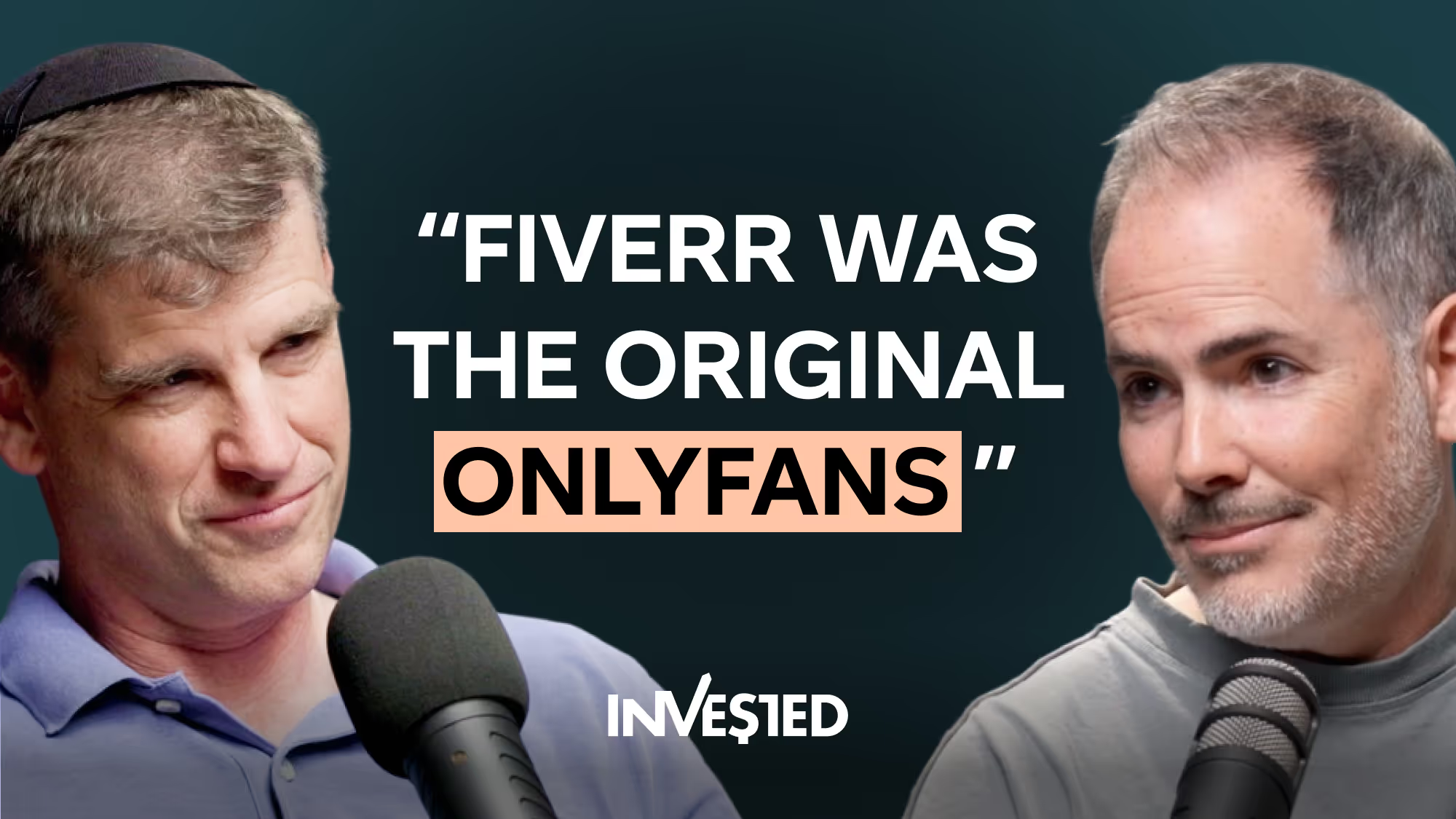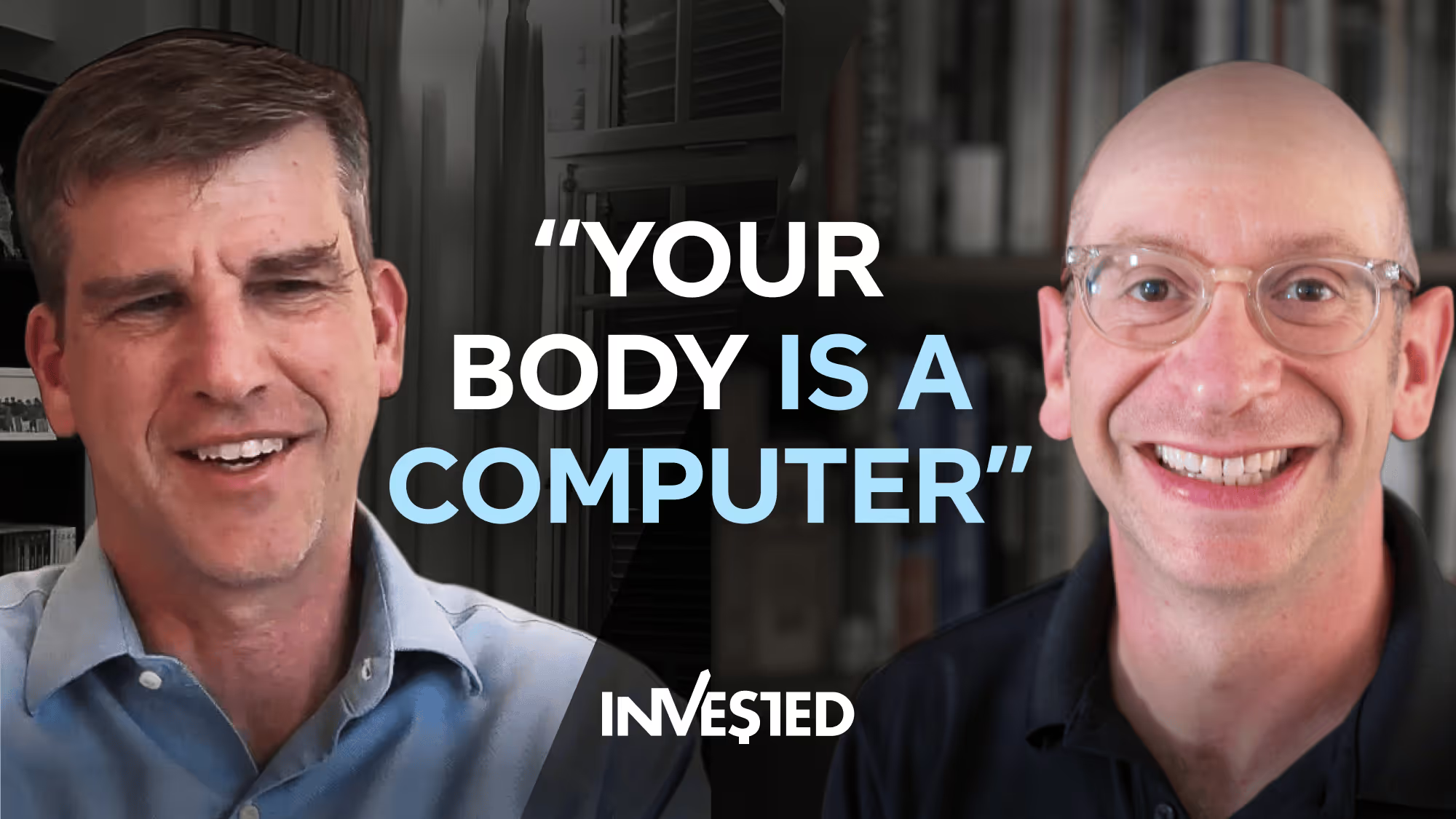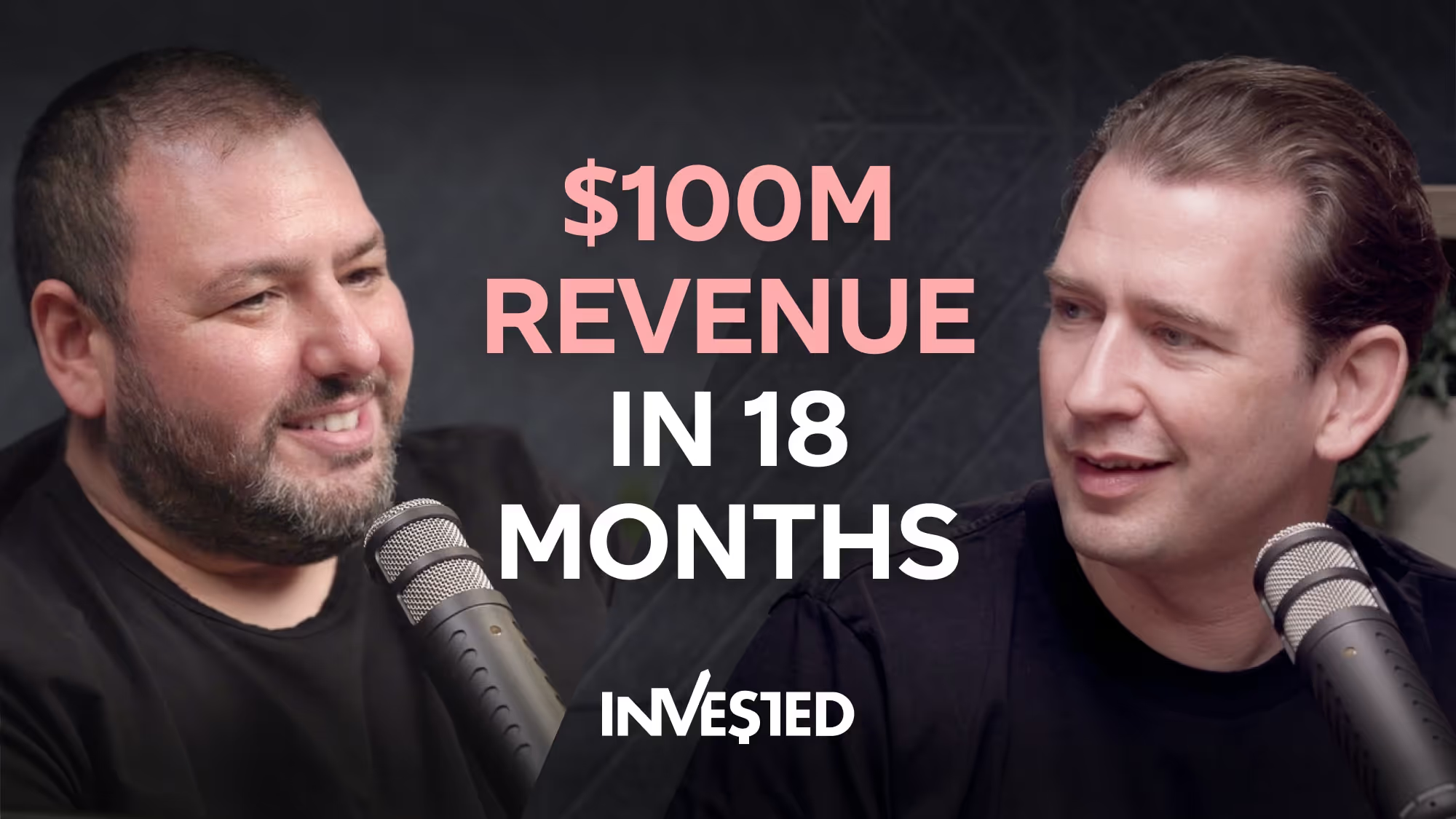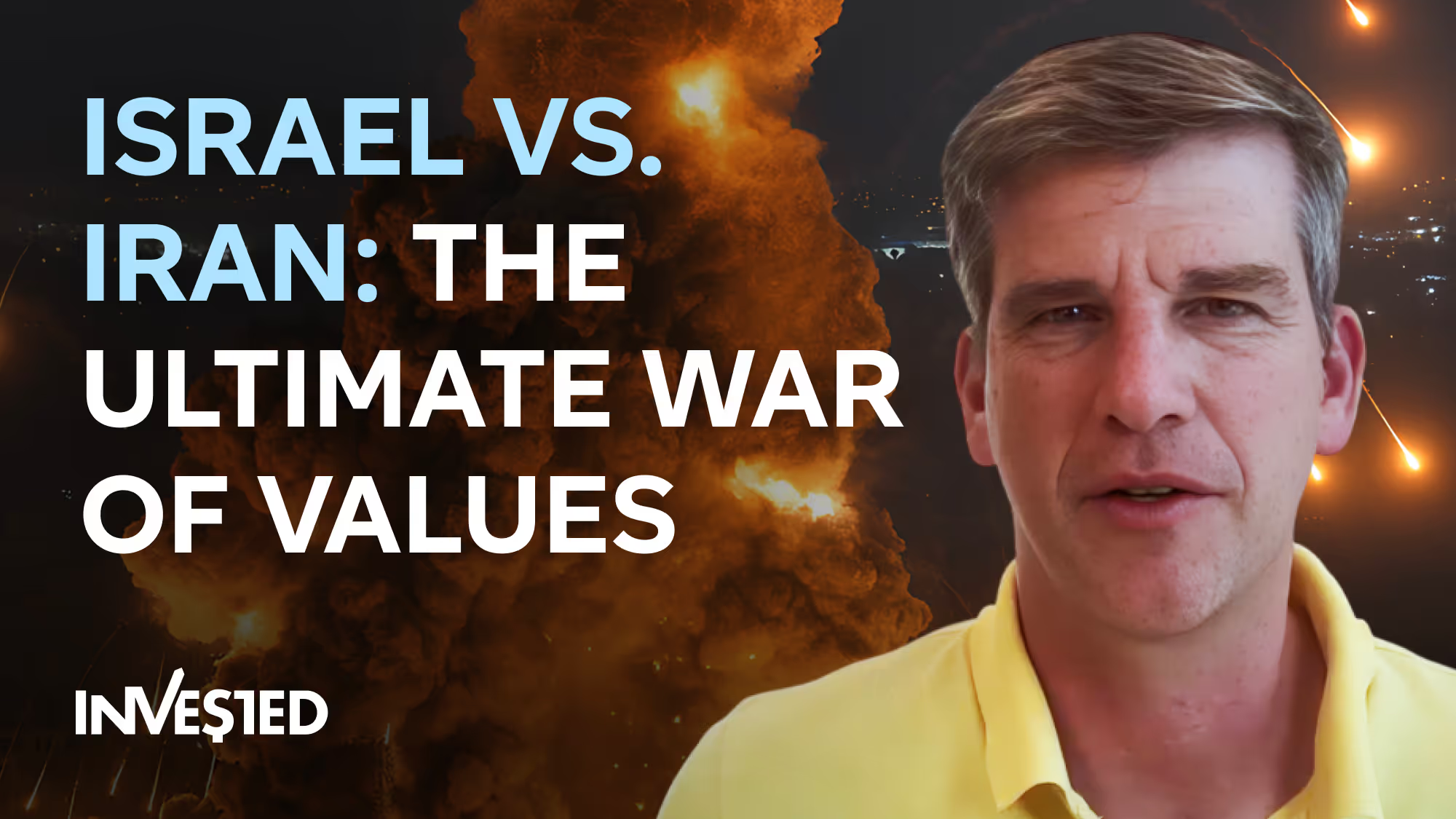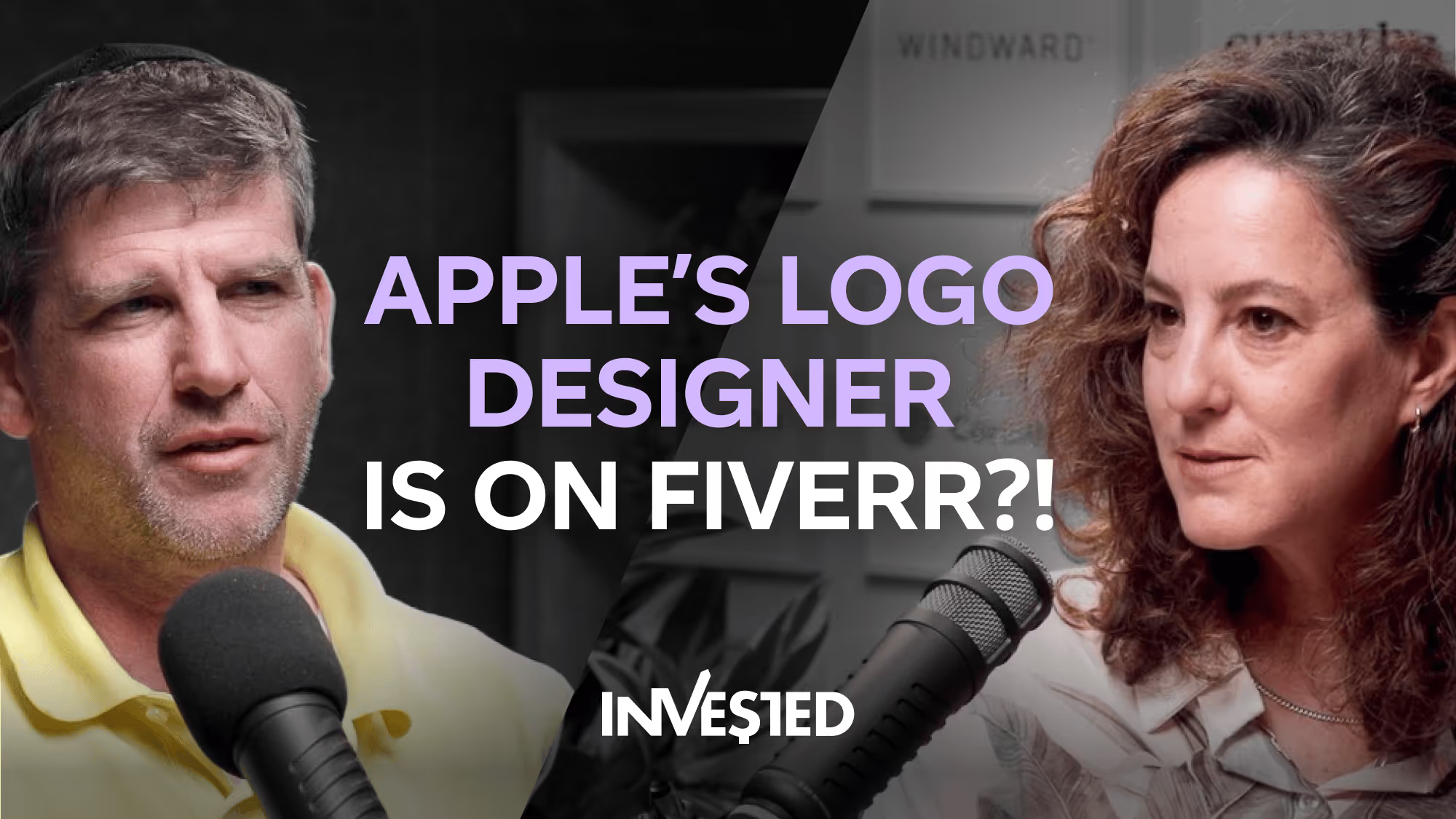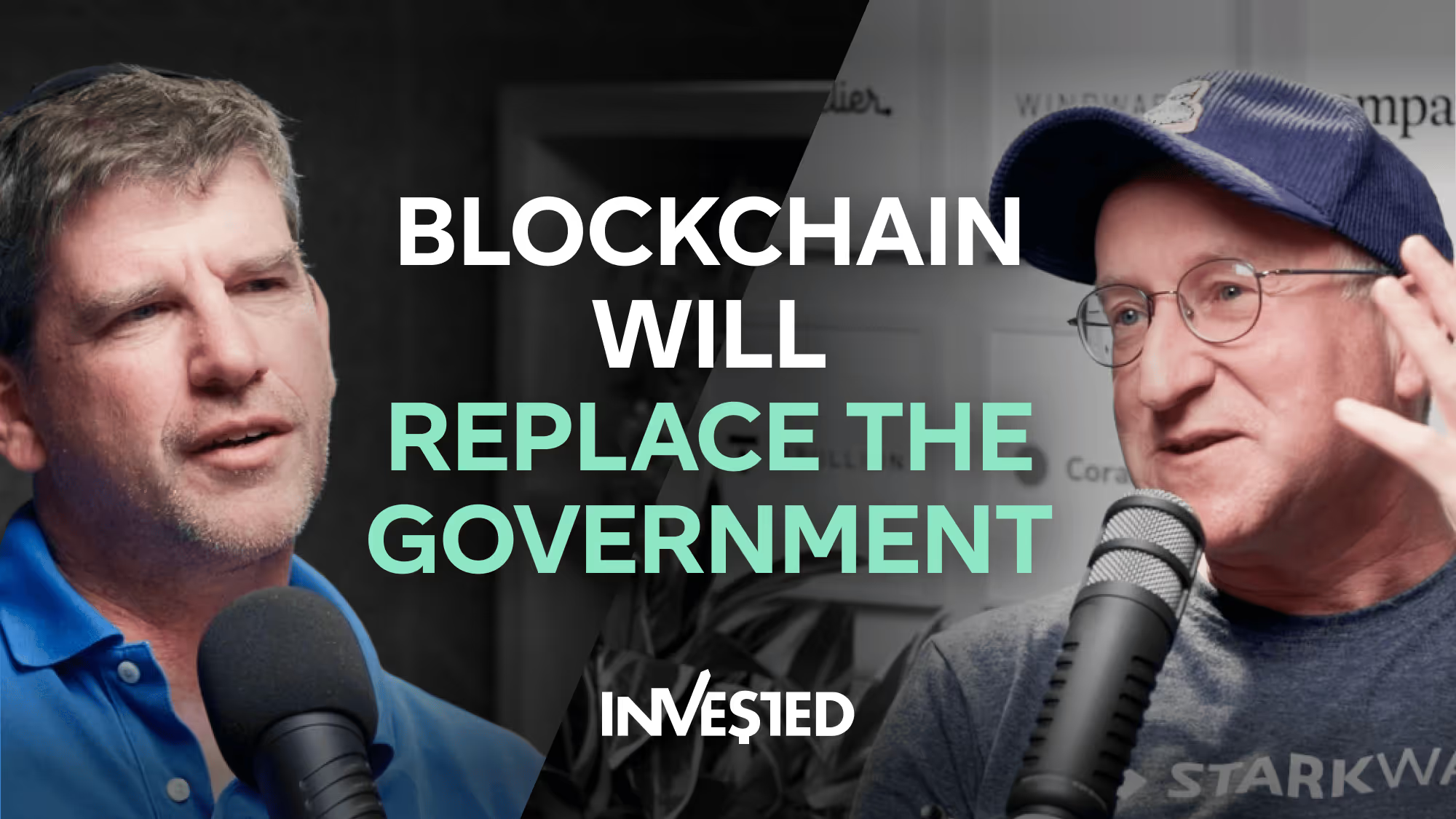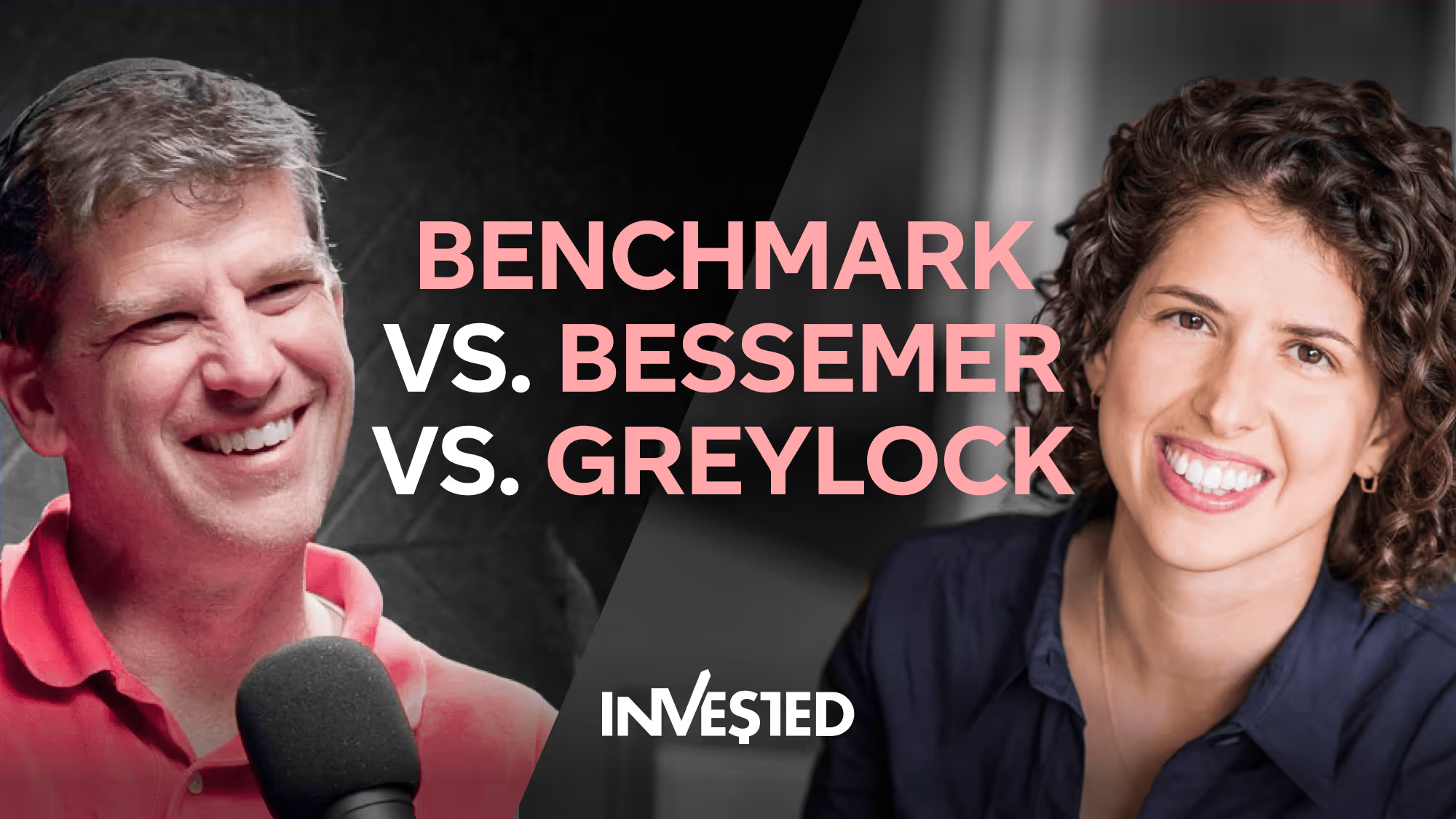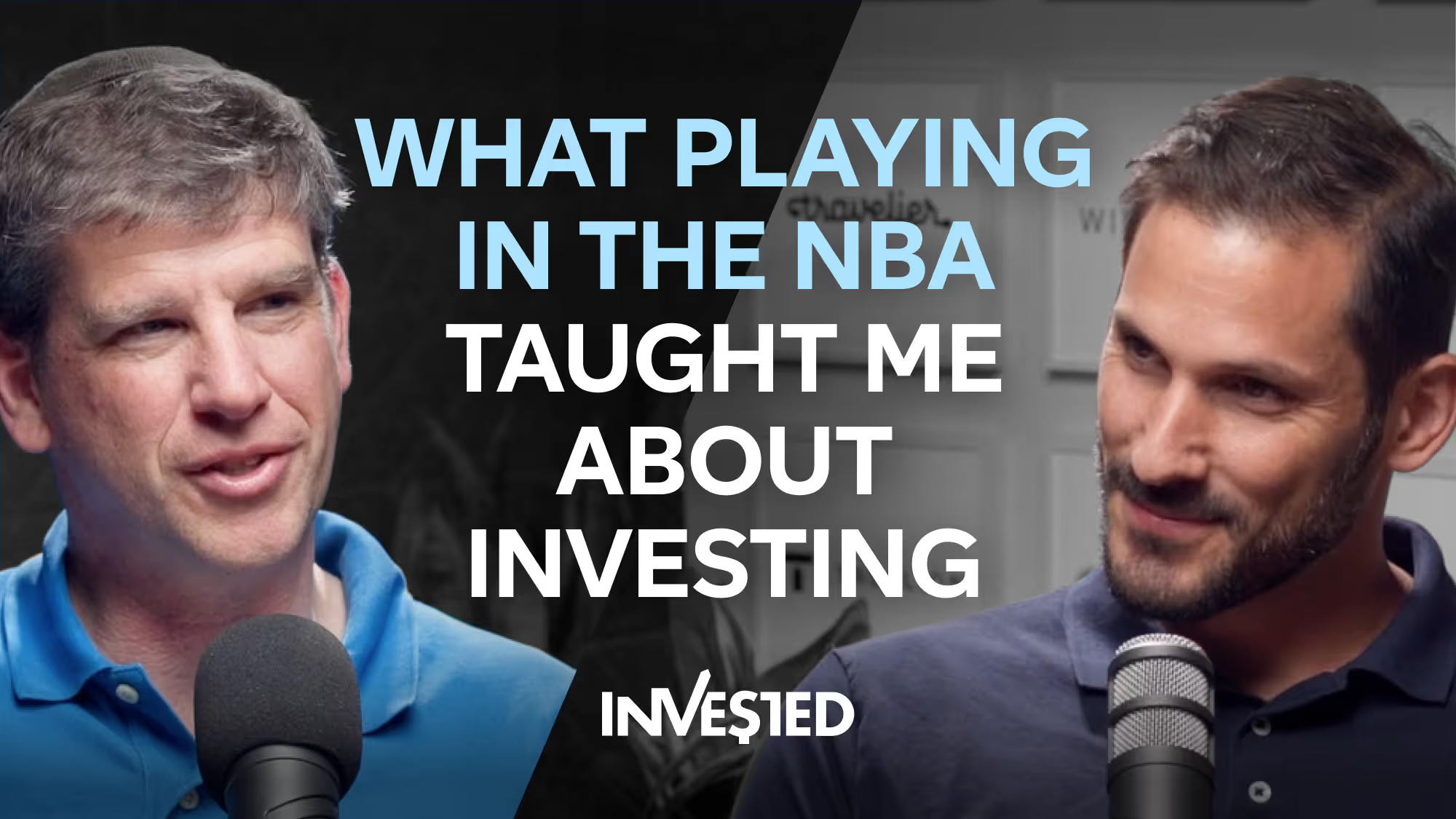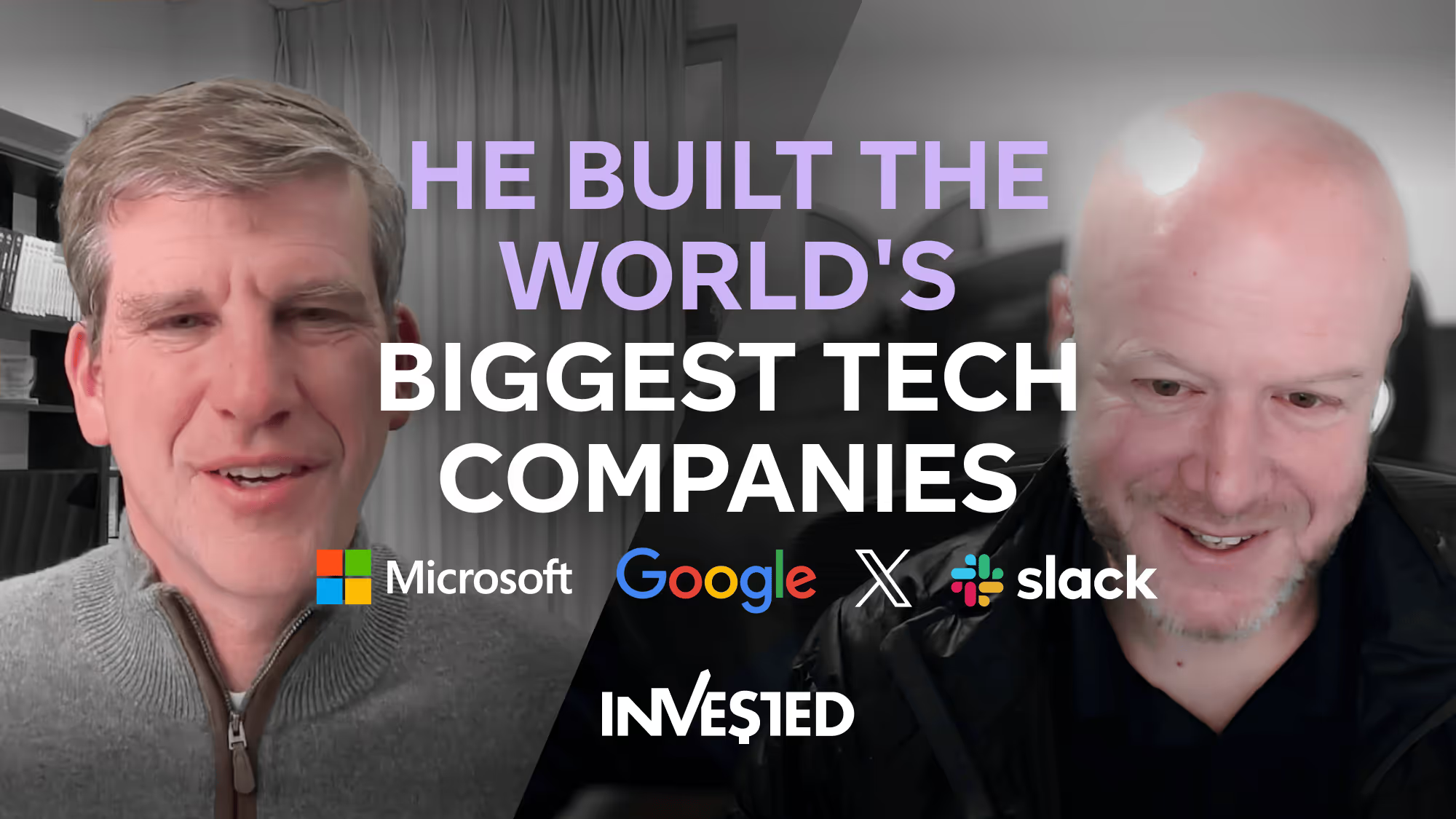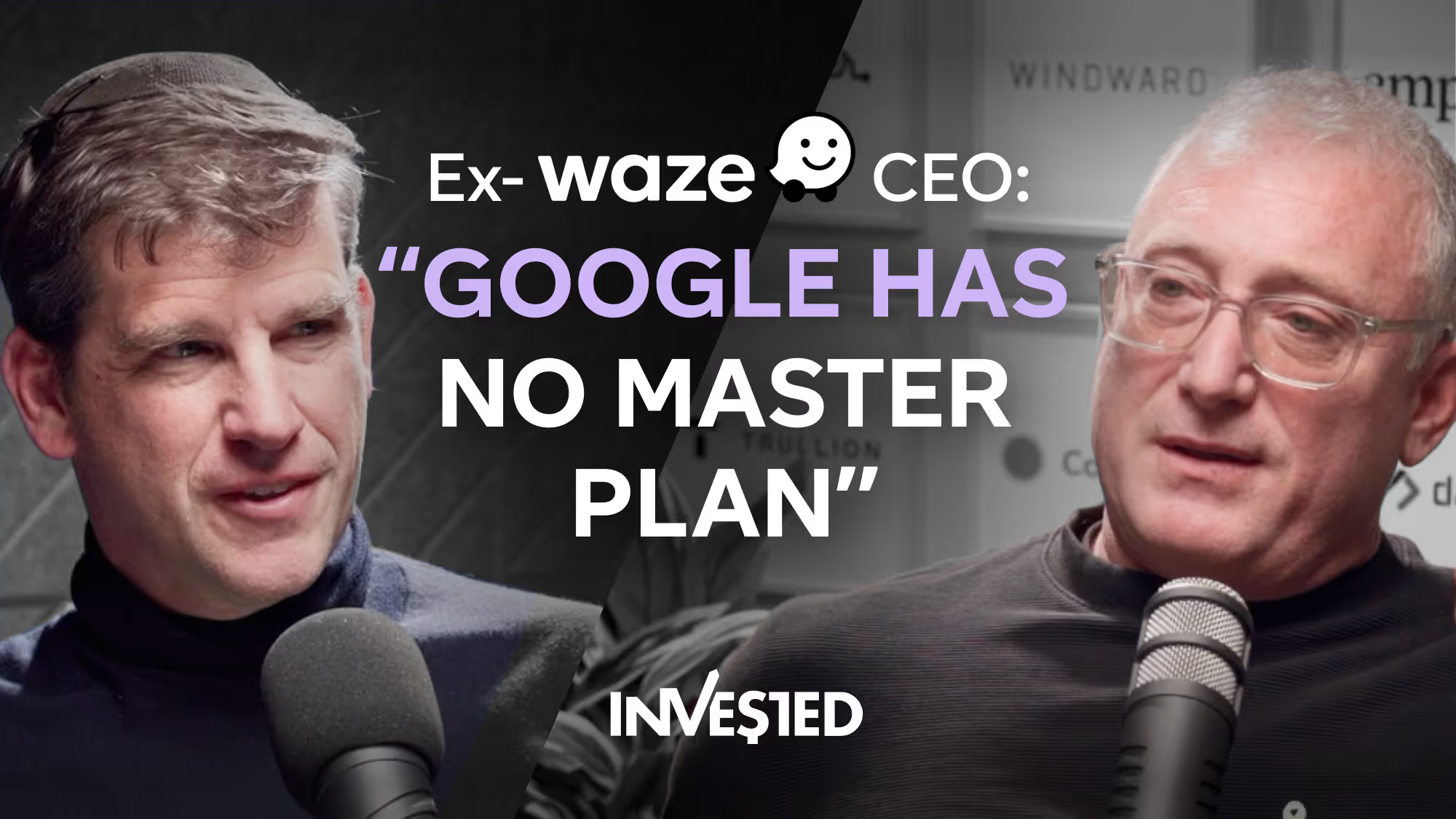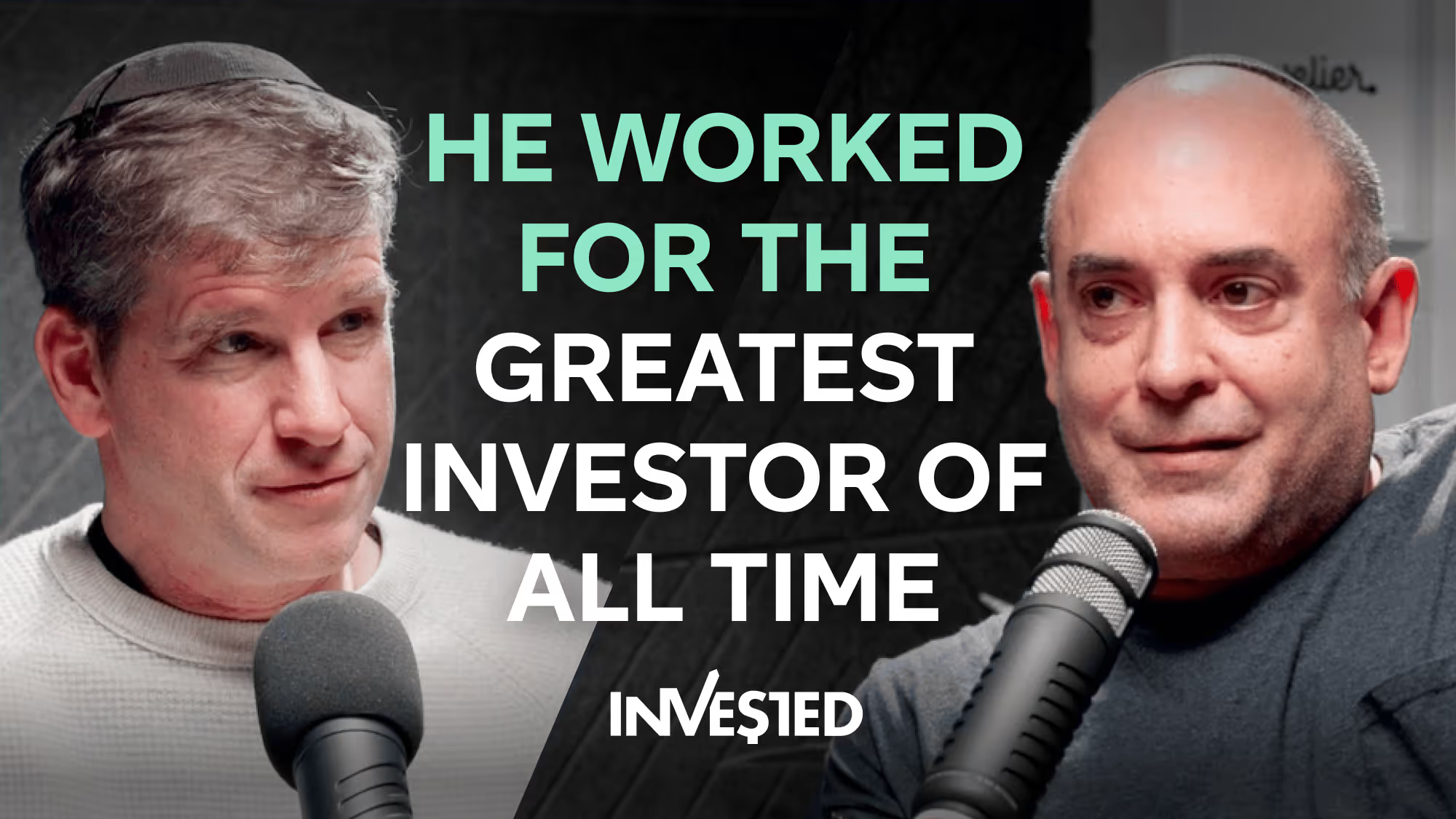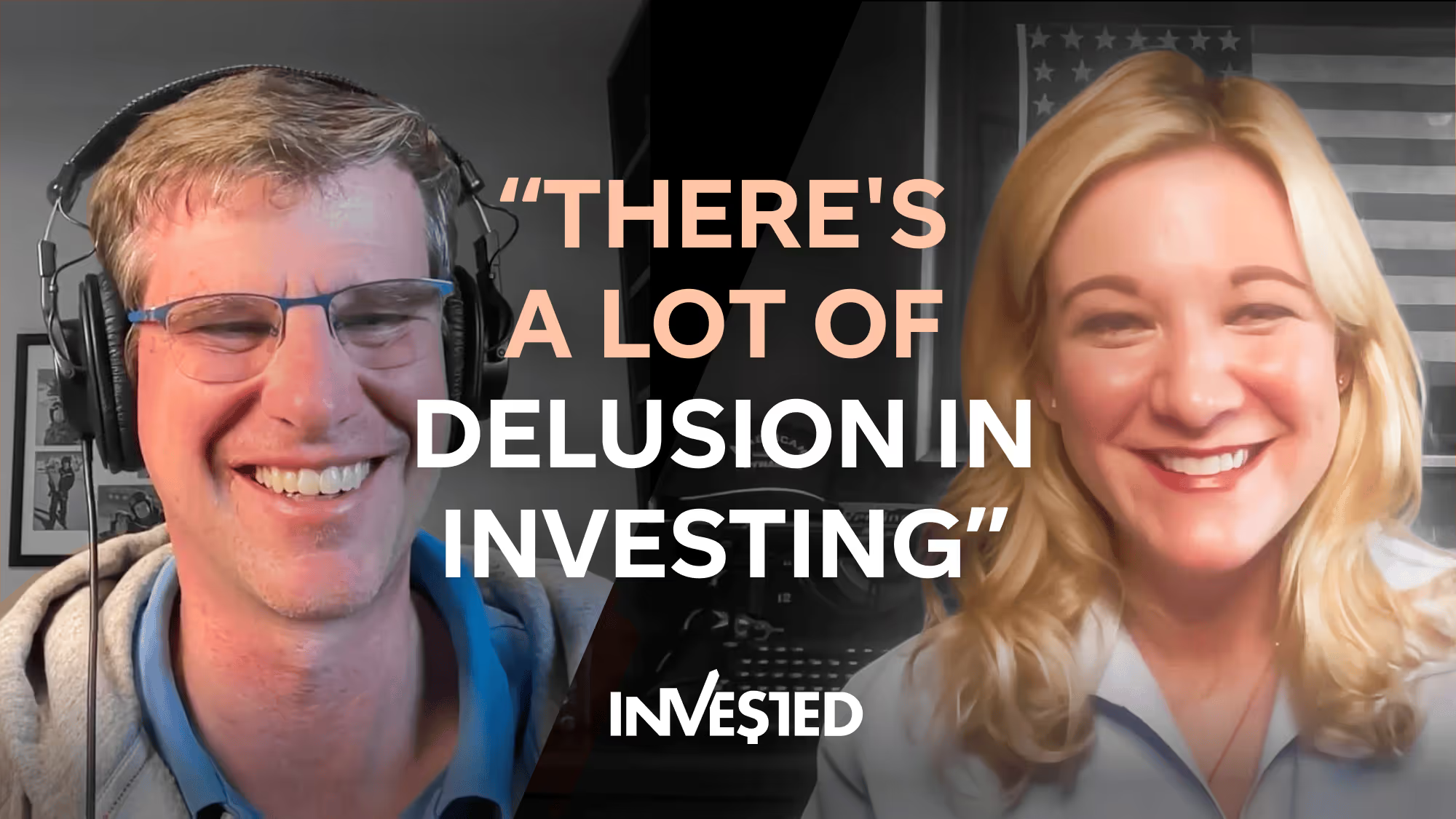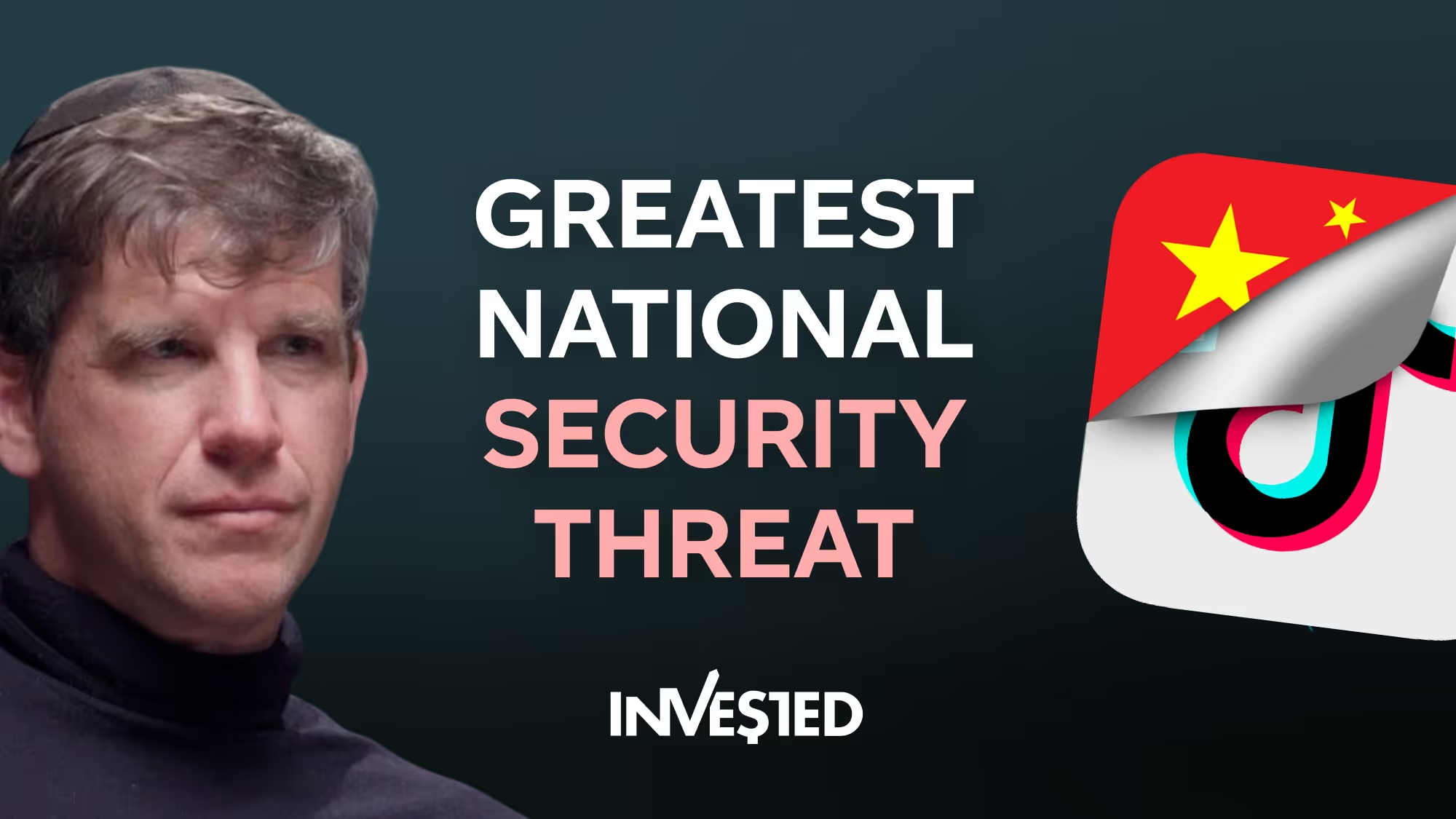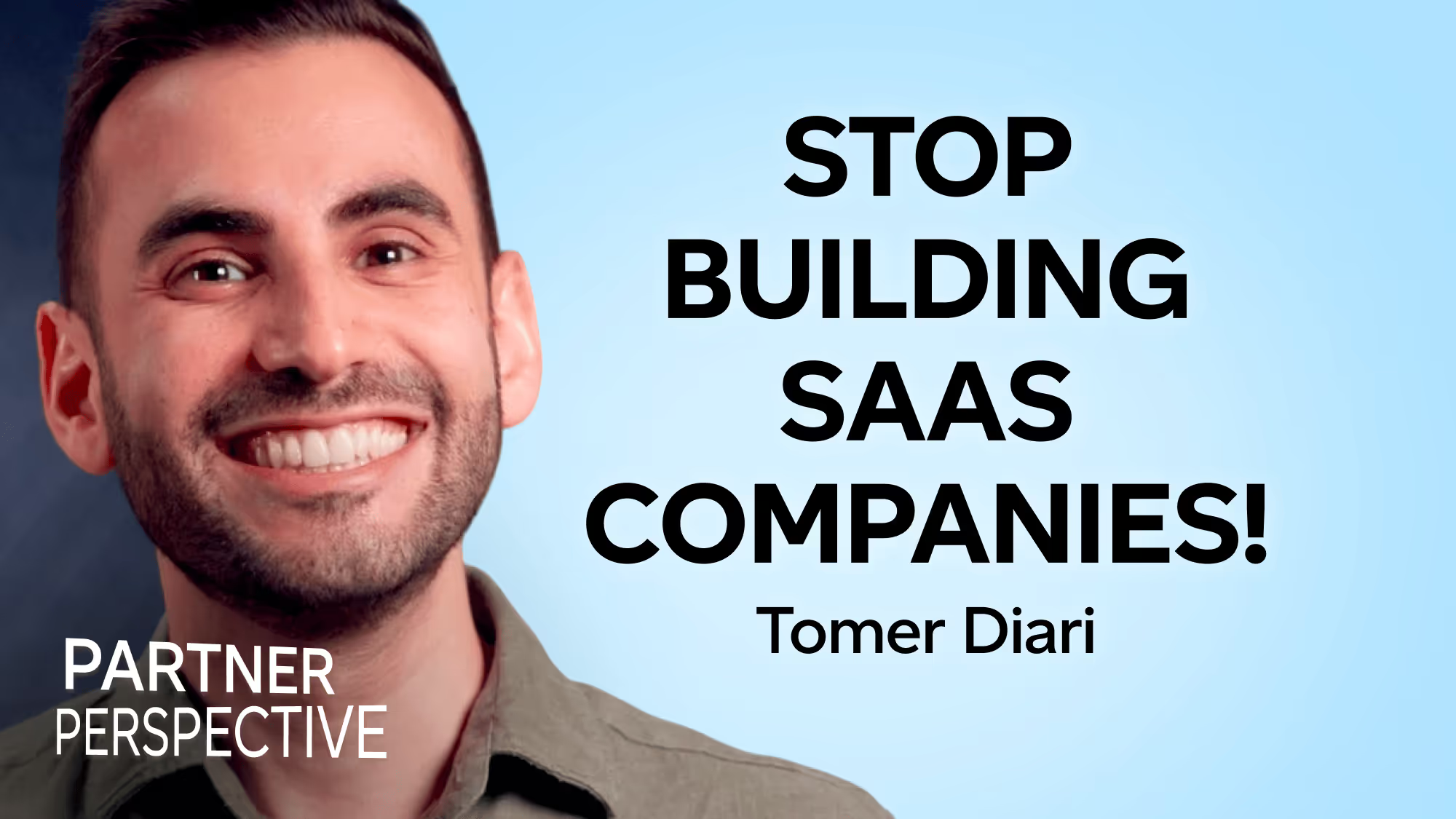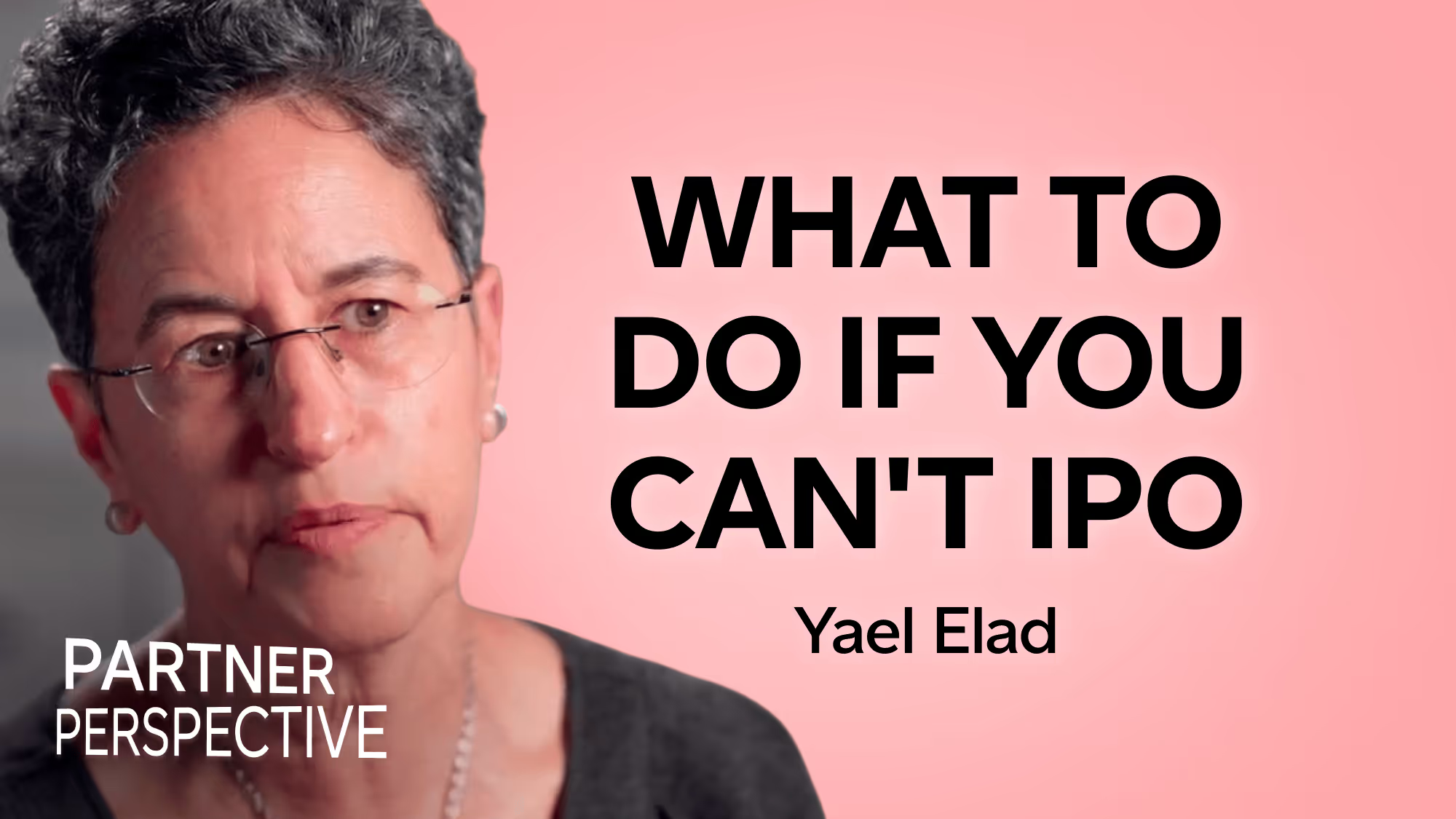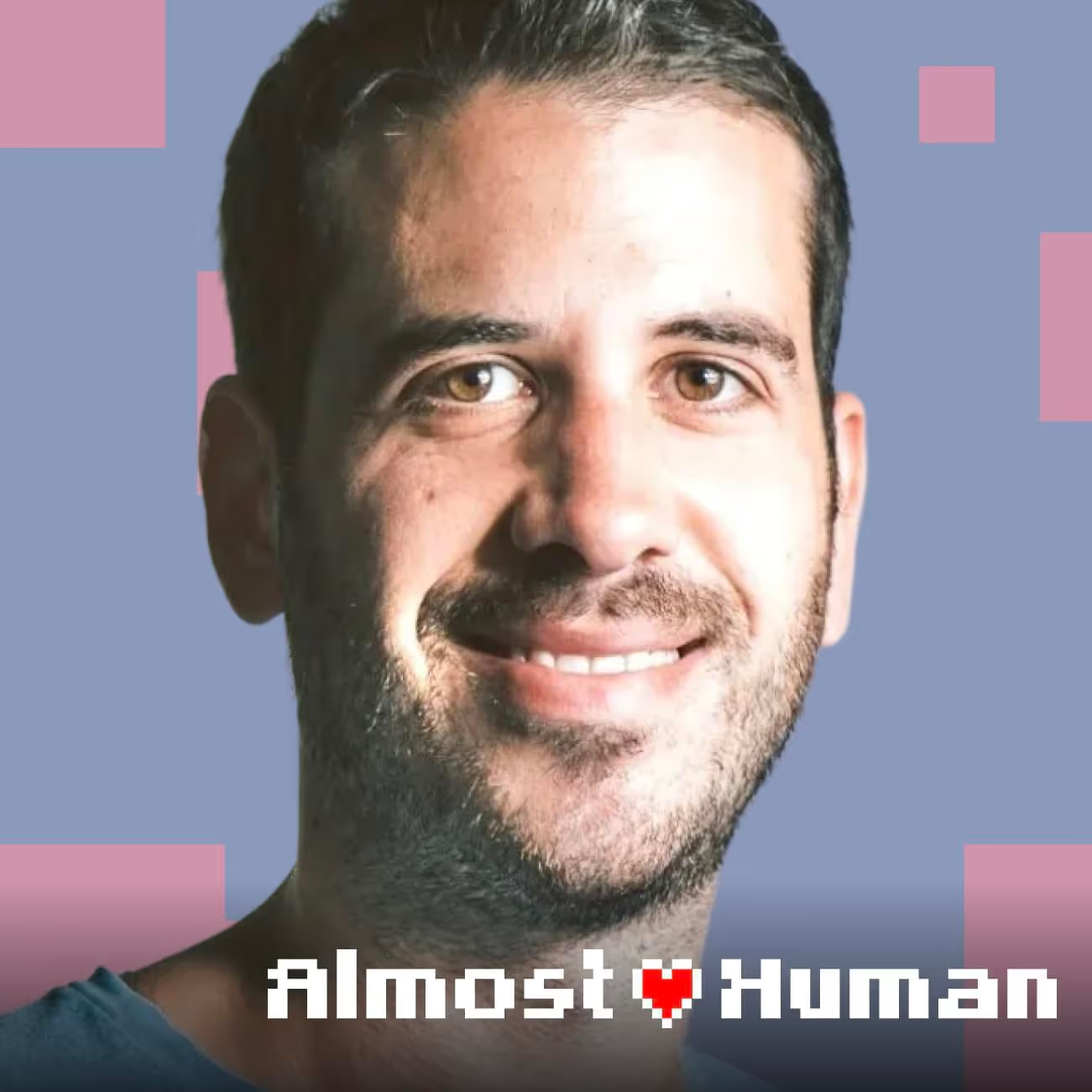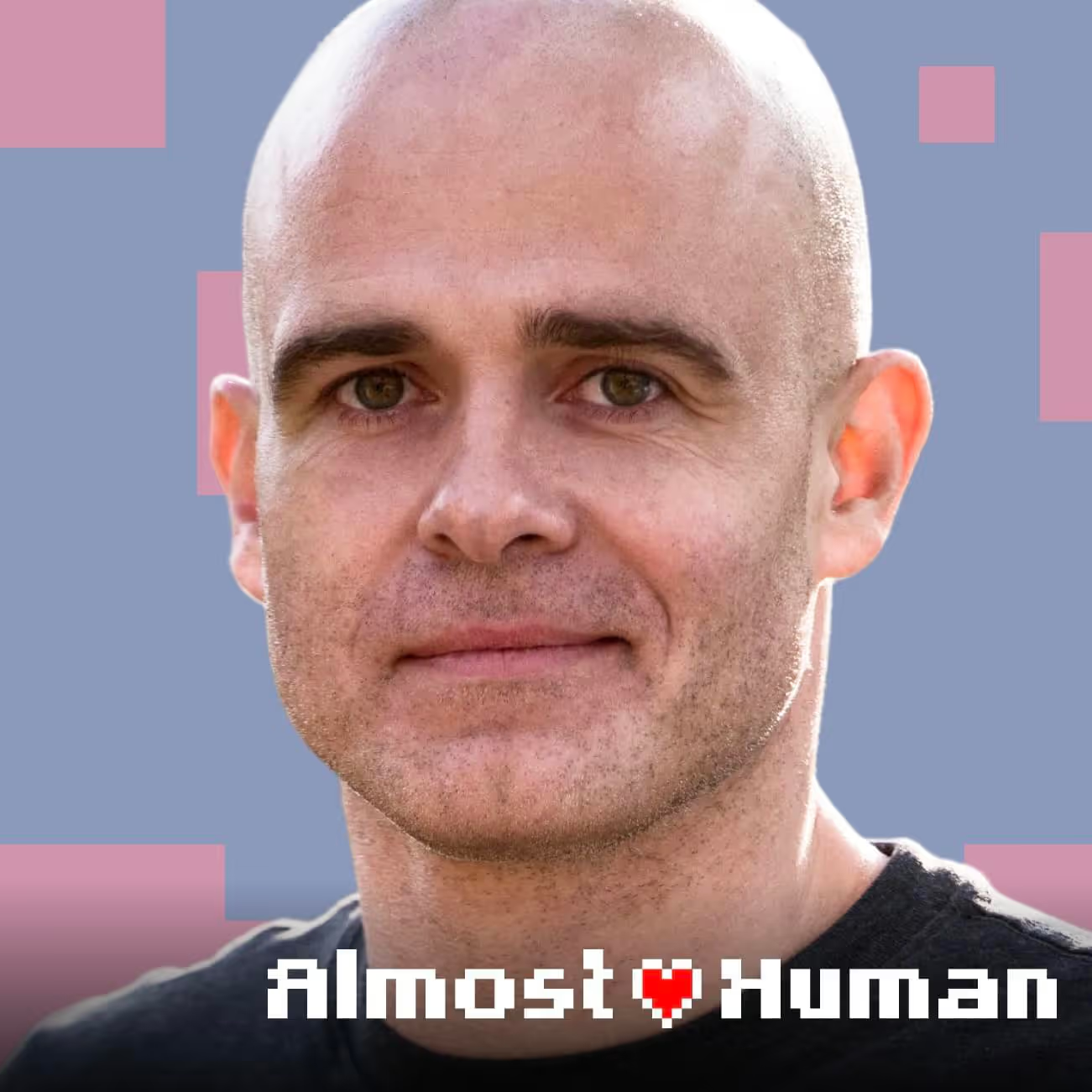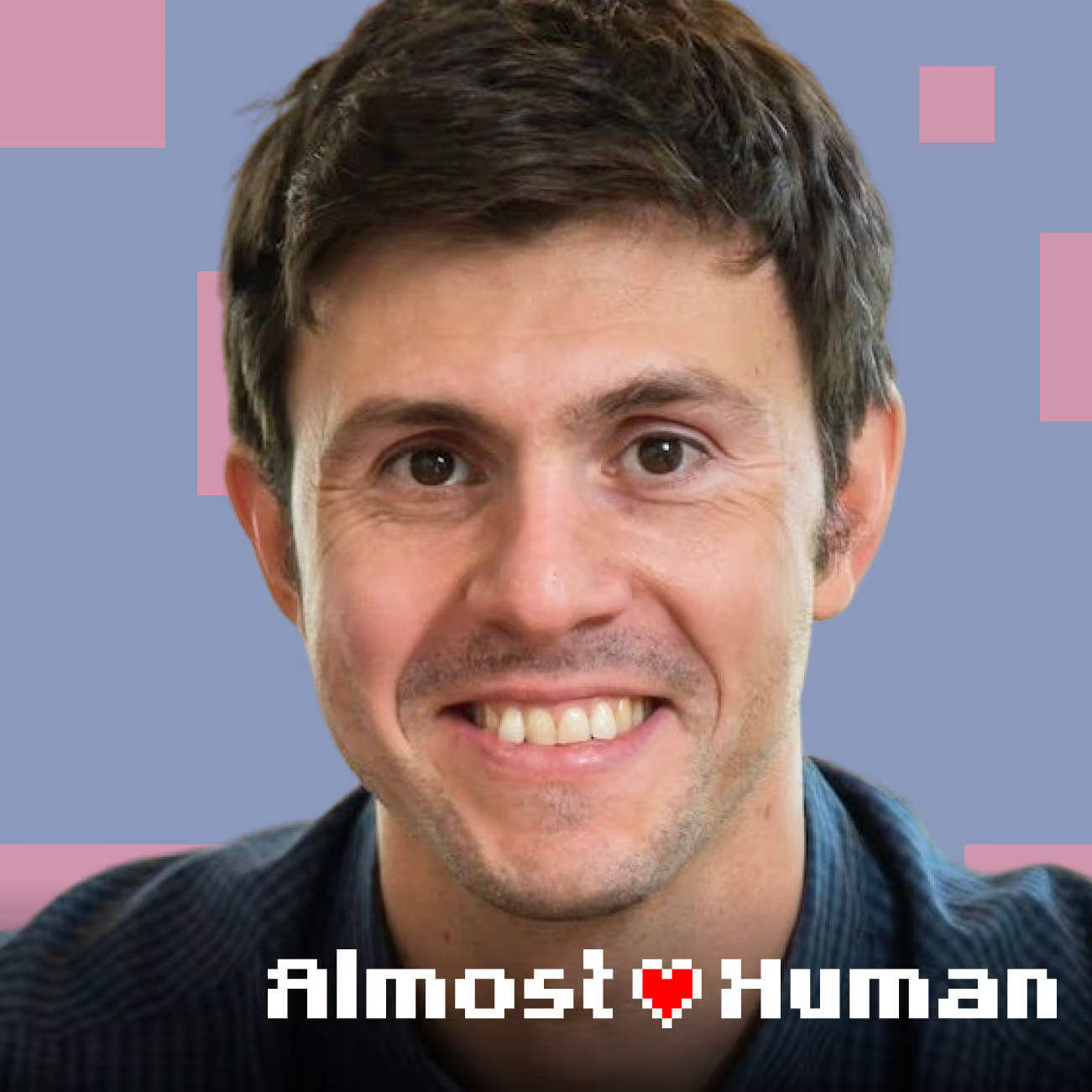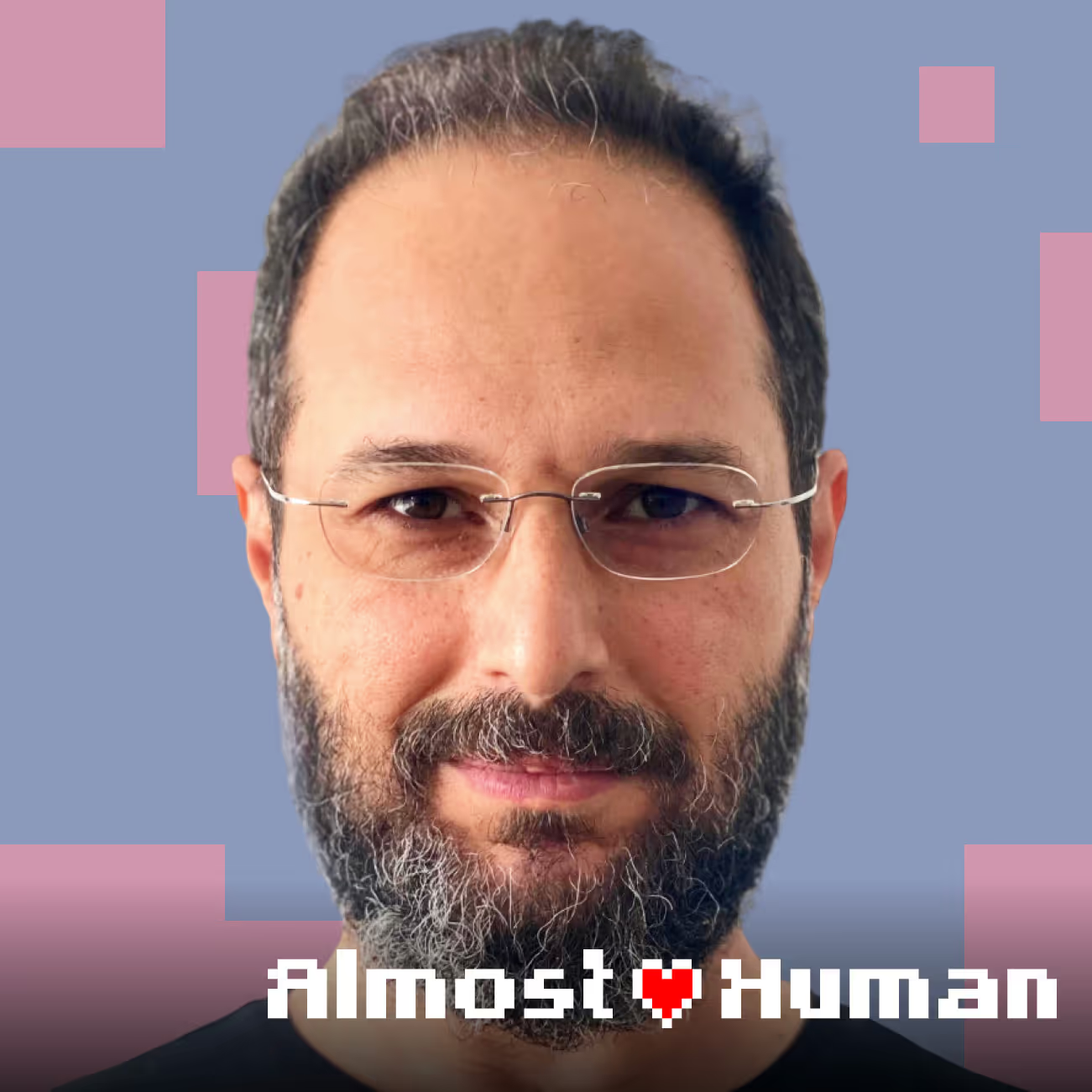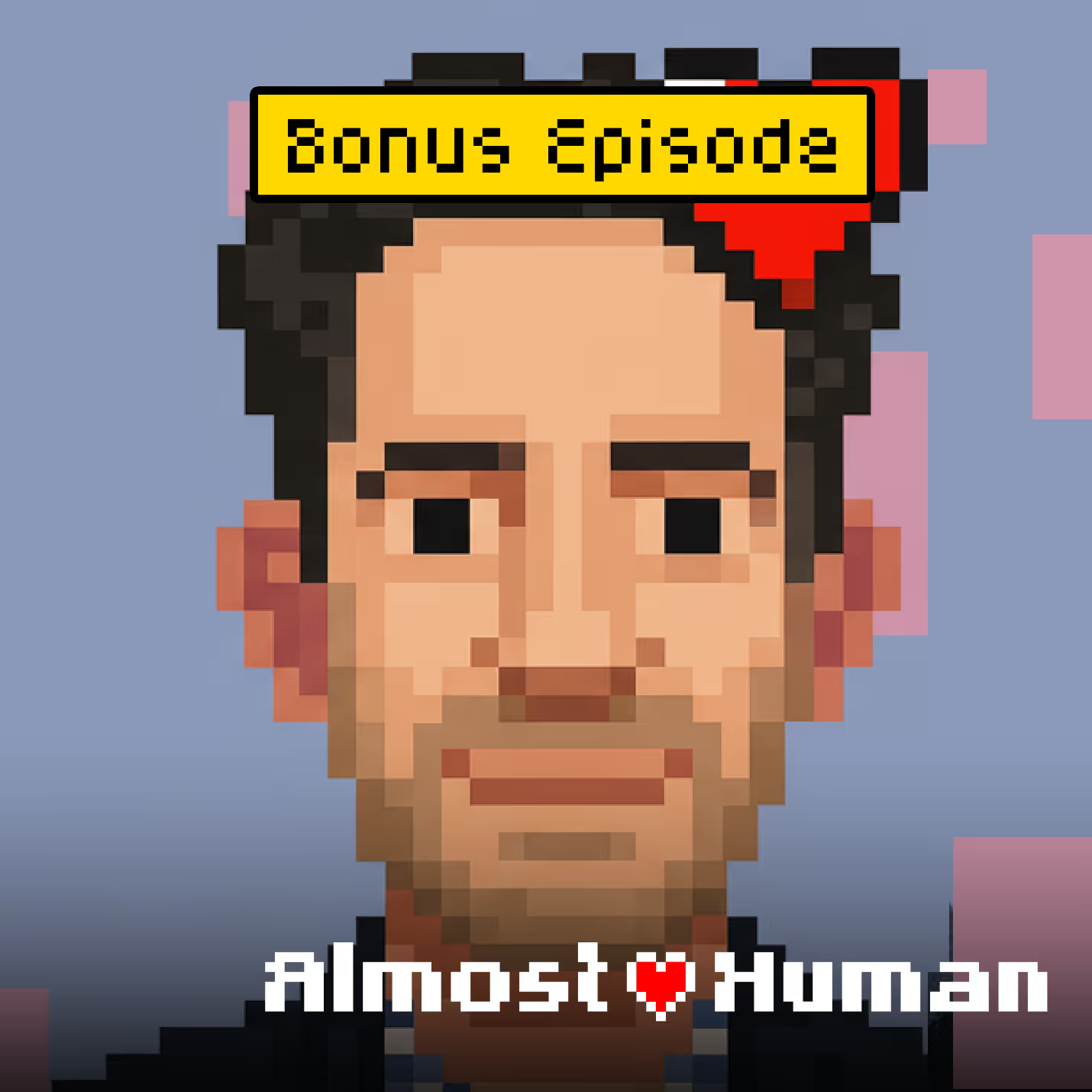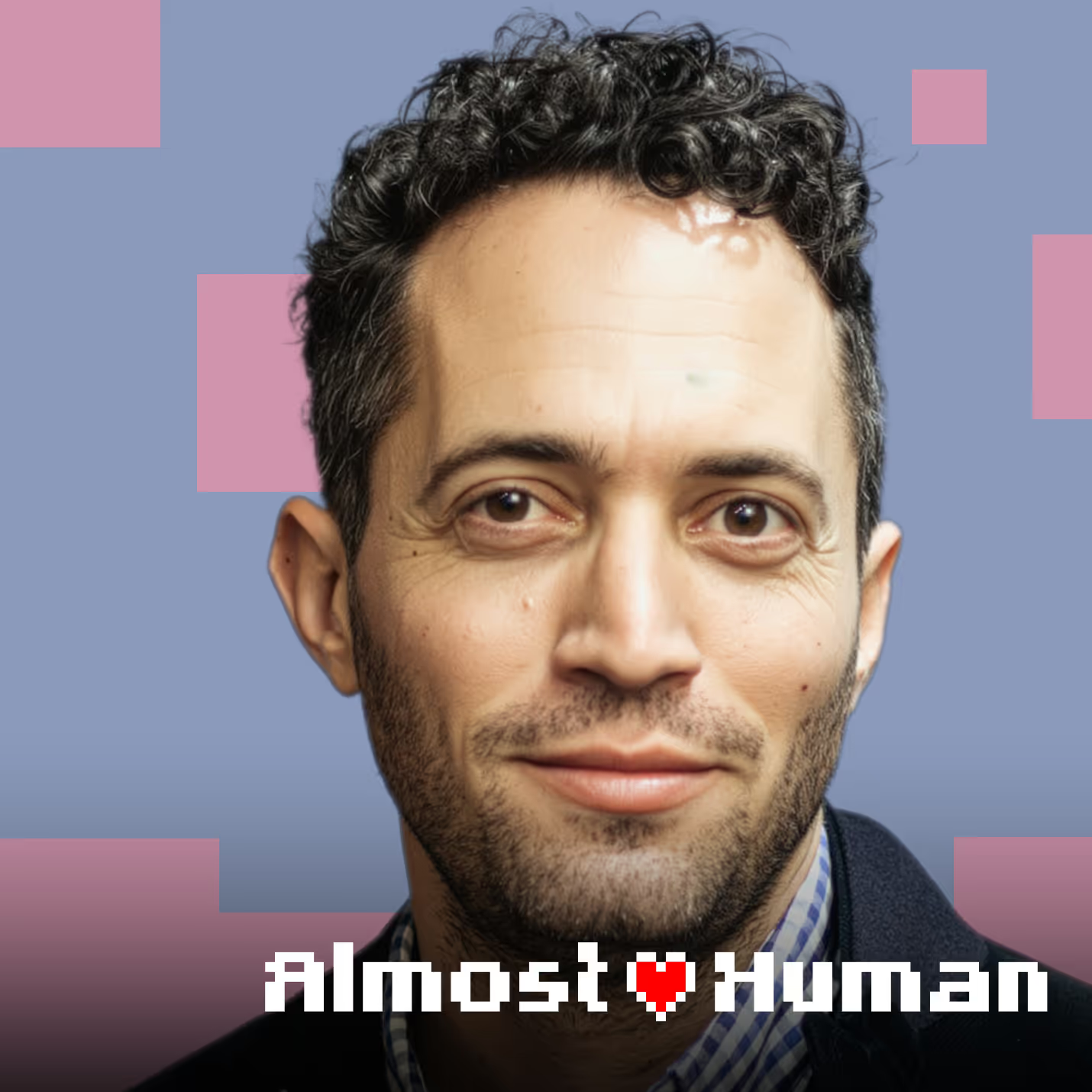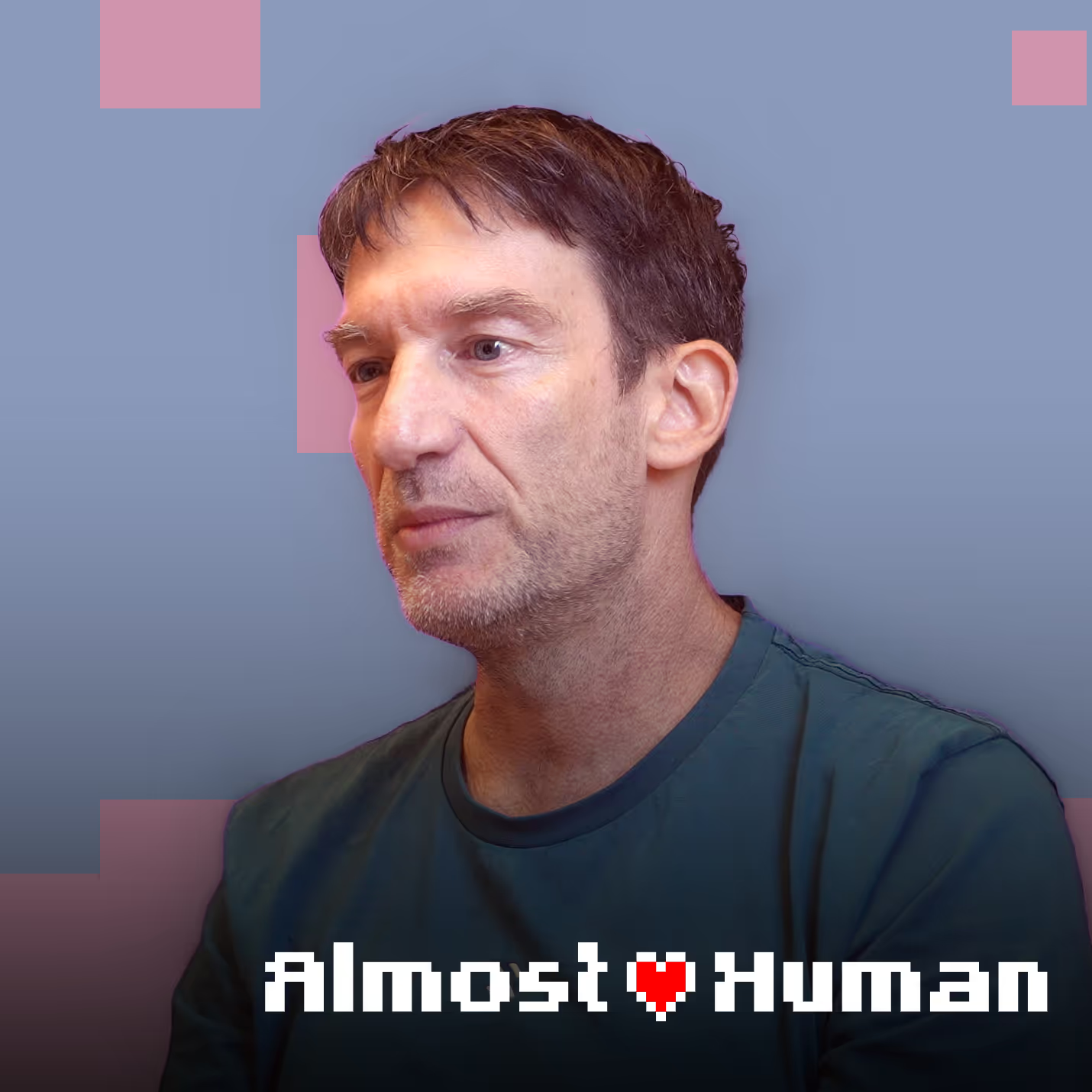Yasmin Lukatz



How can values create value? On this podcast, Michael Eisenberg talks with business leaders and venture capitalists to explore the values and purpose behind their businesses, the impact technology can have on humanity, and the humanity behind digitization.
Yasmin Lukatz



How can values create value? On this podcast, Michael Eisenberg talks with business leaders and venture capitalists to explore the values and purpose behind their businesses, the impact technology can have on humanity, and the humanity behind digitization.
Yasmin Lukatz
Yasmin Lukatz

Yasmin Lukatz
Yasmin Lukatz
- [00:00] Intro
- [04:12] What is ICON and ICON’s Impact
- [09:05] Israeli vs. Silicon Valley Tech Ecosystems
- [13:27] Changes in Investing Behavior Since Oct. 7th
- [15:30] Code for Israel
- [20:00] Yasmin’s Why - Doing What Makes You Happy
- [23:50] Dealing With Uncertainty
- [25:25] Israeli-Jewish-American Identity
- [27:20] Antisemitism Before and After October 7th
- [31:06] Making the Most Impact
- [33:41] When to Invest
- [36:07] Why Shark Tank
- [38:25] Dancing With the Stars - Getting Out of Your Comfort Zone
- [41:27] Rapid Fire Questions
On this episode of Invested, Michael hosts Yasmin Lukatz, Founder & Executive Director at ICON.
Yasmin Lukatz is the executive director of the Israel Collaboration Network (ICON), a non-profit organization that aims to create a Silicon Valley-based community to harness and support Israeli startup technology and innovation. With a background in economics and law from Tel Aviv University and an MBA from Stanford, Lukatz has held significant roles in both corporate and startup environments.
Notable for her strategic investments at Early Stages in leading startups like Tipalti, Navan, and Salt Security, Lukatz also gained recognition on Hakrishim, Israel's version of Shark Tank.
Recently, she founded Code for Israel, the Israeli movement of high-tech volunteers, dedicated to addressing Israel's challenges through technology.
Please rate this episode 5 stars wherever you stream your podcasts!
Michael Eisenberg: [00:00:00] You could have done anything. You could have gotten into the family business. You could have invested in these startups that you met in Silicon Valley. You had easy access to them. Someone probably would have hired you as an executive at some point. Why did you choose to do what you're doing? Give us the why.
Yasmin Lukatz:
It goes back to what makes you happy. Being impactful, helping my community, creating this community - this is actually what makes me happy. So it's pretty selfish. I want to be happy.
Michael Eisenberg:
Welcome to Yasmin Lukatz. How are you Yasmin?
Yasmin Lukatz:
Thank you, Michael. Thank you for having me.
Michael Eisenberg:
Okay, before we even get started, I normally ask you to introduce yourself quickly and tell us your core value.
Yasmin Lukatz:
Wow. I think integrity is one of them. I think it's very important for me when I choose people I want to work with. Authenticity too. And that's very important. Yeah. And I love the State of Israel. I think that's becoming–when we, when I think of values, I think about general things, but I think the love for this place is becoming stronger and is part of my core values.
Michael Eisenberg:
Wow. I actually want to dig into that a bunch in this conversation, but maybe I'm just going to jump right to it.
So for our audience who doesn't know who you are, Yasmin Lukatz has lived between Israel and Silicon Valley over the last 20 years, I have that about right?
Yasmin Lukatz:
18 years, and I came back two years ago.
Michael Eisenberg:
And she came back to Israel two years ago. She was the Founder and Executive Director of ICON, which is the Israel Collaboration Network.
She is the Founder and President of Code for Israel, and non-tech people may know her from the Israeli version of Shark Tank–
Yasmin Lukatz:
And Dancing with the Stars!
Michael Eisenberg:
I was going to say, and Dancing with the Stars. So she is multi-talented, an investor, runs multiple not-for-profit networking activities. Everybody in Silicon Valley knows Yasmin.
We'll come to that soon.
Yasmin Lukatz:
My daughter is doing a reality show now. She's doing Peking Express, and now I'm starting to be known as “Shira's mother,” and I love that.
Michael Eisenberg:
That's amazing. I don't know what the reality show, Peking Express is.
Yasmin Lukatz:
Yes. It's like The Amazing Race.
Michael Eisenberg:
I don't even know what that is.
Yasmin Lukatz:
You just, they don't get–it's long. They don't get–and they have their racing, they do different things, and they don't have any money. In a foreign country.
Michael Eisenberg:
Oh, which country is she going to?
Yasmin Lukatz:
I think they start in Cambodia and they're gonna end in Thailand, I'm not sure.
Michael Eisenberg:
Oh wow, so she's asked to steal people's money on the way as part of the reality show?
Yasmin Lukatz:
She's gotta stay in people's houses, she's gotta ask for food, she's gotta do tasks and compete with the other couples.
Michael Eisenberg:
I'm gonna ask you, how do you feel as a mother? That your daughter is going to run around in Cambodia to wherever–
Yasmin Lukatz:
So she’s already done that and she came back home safely.
Michael Eisenberg:
Okay.
Yasmin Lukatz:
I think as parents–I'm so biased. I'm her biggest fan. Whatever she does, I'm going to be happy about. I don't know, you know that too. I think, if I were to introduce myself, I always start, I'm saying “I'm a mother of four.”
Michael Eisenberg:
Yeah.
Yasmin Lukatz:
I think that my kids are my biggest challenge and biggest achievement, most challenging and most rewarding thing of my life. So I'm very proud and I'm excited to be Shira's mother, to be known as Shira's mother now.
Michael Eisenberg:
Why do you think she chose a reality show where she has to run around skimping on a dollar a day or less?
Yasmin Lukatz:
I think you have to watch the show or you have to invite her, so she is, there's a–she talks about it.
Michael Eisenberg:
Okay. Since you mentioned you came back to Israel two years ago, I'll actually start at the end. Did anything change in you on October 7th or post October 7th?
Yasmin Lukatz:
I think things that were always there got, like, this extra sense of urgency. So when we spoke before, I told you, I heard in my early 40s Professor Jennifer Acker from Stanford talk about her research on happiness, and what is happiness.
And she spoke about how when you're a baby, you're happy when your diaper is dry and you have, you've been fed and held. And in your 20s, speaking of my daughter, it's the adrenaline and the rush that makes you happy. And in your 40s, it's community and impact. That's really, that's research.
And when I heard her speak, I was like, “Now I get it.” Now I know why I do ICON later, on doing Code {for Israel}, why I enjoy connecting people and creating opportunities for other people so much–combined it with my love for Israel, I enjoy and I want to do it here.
Michael Eisenberg:
So you started ICON in Silicon Valley. Tell everyone what ICON is.
Yasmin Lukatz:
So ICON is a not-for-profit. Our mission is to connect between the Israeli and the Silicon Valley tech ecosystems. We're a community of Israeli tech entrepreneurs, U.S.-based venture capital investors, and corporate executives in the U.S. in companies that could be acquired, a partner, or a customer of a startup.
And through a series of programs, we create opportunities for community members to do things together. We just bring the right people in the room, bring the right content, we develop the specialty, put some fairy dust on top, and then they make the magic happen. We just create the opportunity for the magic to happen.
Michael Eisenberg:
Did you take equity for that in ICON?
Yasmin Lukatz:
We–so ICON is a non-profit. We actually belong to everyone, and it's very interesting because it's a non-profit with a business model. But all the profits actually that we make go to fund the non-profit activity.
Michael Eisenberg:
And what's the business model?
Yasmin Lukatz:
We charge for sponsorships. We have some philanthropic dollars that are coming in, but most of the revenues are from sponsorships and from a small fund we created that invests in some of the companies, and all of the profits from the general partner profits go back to the non-profit.
Michael Eisenberg:
And have you had any exits?
Yasmin Lukatz:
We had one exit–so we just started. In 2019 we had one exit so far.
Michael Eisenberg:
Which was that?
Yasmin Lukatz:
Which was at the Dia, I don't know if you know them, they sold to Philips.
Michael Eisenberg:
Terrific.
Yasmin Lukatz:
Yes.
Michael Eisenberg:
So you're like Y Combinator, but without Paul Graham taking your equity?
Yasmin Lukatz:
This is–
Michael Eisenberg:
But for Israeli companies too.
Yasmin Lukatz:
That's just one of our programs.
Michael Eisenberg:
And what are some of the other programs?
Yasmin Lukatz:
So that's SV101. That's, yes, we're like, we don't take their equity. We have a program focusing on women in tech in the U.S. We have a program, a few programs around specific verticals. One in cybersecurity. Now we're starting one in fintech. We do a series of dinners between investors and founders, and so on. Tons of opportunities.
Michael Eisenberg:
And why was this needed? You started what, now, 12 years, 10 years ago?
Yasmin Lukatz:
10 years ago. We’re celebrating our–open for ideas on how to celebrate our 10th birthday.
Michael Eisenberg:
I don't know if you remember this, by the way, but you could do like a “best of” show. I interviewed Sam Altman on your stage at the third conference.
Yasmin Lukatz:
Yeah. We need to bring him back.
Michael Eisenberg:
Yeah, before Sam was like a thing, I interviewed him once, I think it was just at Y Combinator–
Yasmin Lukatz:
He was a thing!
Michael Eisenberg:
He was always a thing. Yeah. He wasn't asking for a trillion dollars for training AI models–but I think I interviewed him, I think I asked him a question of what was more dangerous, nuclear weapons or Donald Trump, at the time, because he was really in the anti-Trump camp. And I can't remember what his answer was.
Yasmin Lukatz:
I'm gonna dig in.
Michael Eisenberg:
Yeah, let's see if we can find it. That's my recollection. Yeah. Why did you start ICON?
Yasmin Lukatz:
I think we started, we wanted–so many times people ask me, did you have the vision on what ICON is going to be when you started it?
And the answer is no. And I think that's comforting for many people that start something and don't have a vision. It doesn't mean you should, you can't do it. What we did do is that we were attuned to opportunities. And if an opportunity came, we took that and if somebody closed the door, we came in through the window.
So we were very entrepreneurial, in the way we developed this nonprofit. But it wasn't like this is my vision on what we're going to be in 10 years. And this is how we got to it. We started actually by trying to solve the problem of Israelis in Silicon Valley, not involved enough in community life, with the Jewish community. That was the problem we were trying to solve. And we thought, okay, let's do something at the JCC, and then Israelis in Silicon Valley do tech, and we'll do something, a conference about tech. And then they're going to come and they're going to see the JCC and they will want to be part of this.
And then as I started working on this event, I first understood how connected this community is. Second, I understood that Israeli tech is a pretty hot commodity, because everyone, even if you're not Jewish and you're not Israeli, you want to know what's going on in tech. It's not enough to just know what's going on in the U.S.
You want to know what's going on in Israel. Everybody wanted to know what's going on and be part of that. And I realize there's so much goodwill that's been created and poured into this conference that we should do something with it.
And the first thing we did is change the name of the event from a conference to a launch event.
No idea what I'm launching. Honestly, no idea what I'm launching. And then slowly, step-by-step we added one thing, we added another thing. Something didn't work. We decided not to do that and move forward. So that has been ICON. I love, I love that I'm in the intersection of tech and innovation and at the same time community work and impact–specifically when it all ties back to Israel.
And I love, also, the fact that we have this business model that supports a non-profit. I think I hope many non-profits get that.
Michael Eisenberg:
We're going to talk more about this kind of circle and the no-profit activity, but–if you had to compare and contrast the Israeli tech ecosystem with the Silicon Valley tech ecosystem, what would you point to?
Yasmin Lukatz:
As an ecosystem? I think one thing's obvious. If you want to sell only here, you're not venture worthy. The market here is not big enough versus in the U.S. you can sell to the local market and it's going to be amazing. It's going to be an amazing success. So startups here always are with an eye for fundraising or for customers in the U.S. And that's pretty obvious.
Having said that, we're a little bit in a disadvantage because you do business with people. And growing up here, I'm not sure you understand all the cultural subtleties, and you don't know someone. My kids went to school and all the parents of the kids in the preschool were like CEO of this company and that company, and we just socially knew each other.
And I'm thinking like here I can probably get to people cause I know them from the army, I know them from, from the kids’ activities. I know them because they went to school with me. And then if I'm an entrepreneur and I'm coming to the U.S., I don't have this breadth and depth of connections.
So that's another difference.
Michael Eisenberg:
What are the core differences between Israeli entrepreneurs and Silicon Valley entrepreneurs?
Yasmin Lukatz:
I think, I don't work with Silicon Valley entrepreneurs.
Michael Eisenberg:
But you know a lot. You met a lot through ICON.
Yasmin Lukatz:
Yeah. I think when, when you say that you expect me to talk about the stereotype or the chutzpah.
Michael Eisenberg:
No. I have no expectations. And I know you always have different answers. So I ask you.
Yasmin Lukatz:
I think the Israeli entrepreneurs are awesome. I think they do the work and they learn about the differences, and they understand you just, things that worked here are not necessarily going to work there.
And they want to know, maybe even the difference on how you dress to a meeting, on what's okay and what's not okay to ask. They work on their accent. If there's like a word, I remember one of our, one of the founders that spoke on stage and when he introduced the team, he wanted to say, “We're just a bunch of hackers.”
It's based on their military hacking experience. That's what, it's a cool sentence to add. But with this very deep Israeli accent, it came out as I don't know if I can say it on the podcast–”We're just a bunch of fuckers.” That's what it came out as really. So they're very, I think they're very much aware of all those differences.
I love working with Israeli entrepreneurs. I think someone in the U.S. said, someone told me, “I like them because I'm being stabbed in the front and not in the back.” What do you think about it? Do you?
Michael Eisenberg:
What are some of the other feedback you've gotten on Israeli entrepreneurs?
Yasmin Lukatz:
There's the joke that, when an entrepreneur comes out of a meeting and he said, they suggested they thought it's interesting,
If you hear, “I thought it's interesting,” it doesn't mean that I'm interested. We're never gonna– “let's do lunch,” that does not mean we want to do lunch together. If I open my calendar, it says, “let's do lunch, I can do next Thursday”–then I want to do lunch with you. But let's do lunch one day, it's just bye.
So those are cultural differences. That's like, I came out of a board meeting and the board said, “I should be looking at so and so,” and I thought about it and I don't think I should do that. That was not a recommendation! That was something you should do.
Michael Eisenberg:
Do you see a difference in aspiration between the Silicon Valley founders and the Israeli founders?
Yasmin Lukatz:
I don't work enough with the Silicon Valley founders to say that, but I gotta say the Israeli entrepreneurs are awesome. They have big dreams. They used to say that everybody wants to build a company until they can sell it. But now I also see entrepreneurs, they dream of creating a large, a huge company and going public.
No, I think the Israeli entrepreneurs are inspiring, aspiring, full of fire, and ready to rule the world. Maybe I shouldn't say “ready to rule the world.” It's so, like, fueling antisemitic stuff.
Michael Eisenberg:
Yeah.
Yasmin Lukatz:
Yeah. We're ready to succeed and spread the amazing things we create here and help everyone.
Michael Eisenberg:
I know you for a decade plus. I've never heard you hide what you think, even once, which is good. Just to follow up on that, so it's been, like, a complex year for Israeli tech. It started with the judicial reform here, and now the war. Have you seen any changes in your Silicon Valley network as it relates to your–less investing–we've raised tons of money for our portfolio since the war started. Almost a couple hundred million dollars at this point.
Yasmin Lukatz:
So I think venture capital is a business and part of your business model is that you have to make a set amount of investments per year.
Michael Eisenberg:
No, I never do that. Only if I find good opportunity.
Yasmin Lukatz:
So you can go on and not invest like for three years?
Michael Eisenberg:
Ah, three years my LPs might get antsy.
Yasmin Lukatz:
Okay. But it is based on the assumption that you are going to consistently invest. Maybe it's not three and three, but you have to keep on looking for opportunities.
Michael Eisenberg:
Yeah.
Yasmin Lukatz:
I think, what I do see, I see actually investors that are more eager, that see what's going on and understand that it's more challenging now for Israeli entrepreneurs and get them–send me anyone, let me see anyone. I do see that. I haven't seen anyone who's said, I don't want to invest in Israel now. But I think we have to also acknowledge that this is part of not just a crisis in Israel, there's a slowdown in tech that's been going on for a while, all over the world.
Michael Eisenberg:
Yeah, I agree with that.
Yasmin Lukatz:
Many times I was asked, are we being penalized because of the judicial reform? And it was really hard to tell, are things happening because of the judicial reform or are they happening because of, they're happening anyway all over the world.
Michael Eisenberg:
Yeah. I completely agree with that. I've said that to the Treasury Ministry over and over again. I've written it publicly. I think it's very difficult to tease out the causes of the downturn. And by the way, my sniff test is, a lot of it has to do with the investment in base AI models in Silicon Valley that didn't exist here, or basically anywhere besides Silicon Valley and France, as best I could tell. And maybe Abu Dhabi.
I want to dig into something else. So you kept coming back to ICON, and the nonprofit, and community, and purpose. What is Code for Israel?
Yasmin Lukatz:
Code for Israel is another nonprofit we created three years ago. And the thought there was that we have amazing talent in the tech community and they want to do things for the community.
And we end up sending them, distributing food for the needy, or painting a preschool, which are great things, but wouldn't we be getting so much more of their time if we let them do what they do best, which is write code? At the same time, we have many nonprofits in our world, in Israel, that target core issues in the Israeli society.
And it's, I don't know if you say in English, “the shoemakers going bare feet?” What's the English equivalent?
Michael Eisenberg:
The cobbler's kids have no shoes.
Yasmin Lukatz:
That's the one. The shoemaker. Yeah. And we create amazing technology that touches so many people around the world. And yet our own nonprofits are not as tech advanced as they could have been.
So what Code for Israel does is that creates those collaborations. We bring volunteers from the tech world and they either implement or develop specific tech. That helps those nonprofits do the work in a more efficient and productive way.
Michael Eisenberg:
Give us an example of a project.
Yasmin Lukatz:
So one of them that's very relevant recently, there's the “Tnuah l’mavak b’antishemiut bareshet” {התנועה למאבק באנטישמיות ברשת}
Michael Eisenberg:
Yeah, which is the movement to combat antisemitism online.
Yasmin Lukatz:
Yeah. I don't know what's the specifics of their name in English, but–so before we help them, they have volunteers that scan YouTube, Facebook, any of those. When they find an antisemitic expression, they file a form and they request that it will be removed. We created a tool for them in which they can do it automatically and now they doubled their tempo by 10.
Michael Eisenberg:
Wow.
Yasmin Lukatz:
So instead of 7 expressions an hour, they can tackle 70 an hour.
Michael Eisenberg:
Wow.
Yasmin Lukatz:
Yeah.
Michael Eisenberg:
Give us another example.
Yasmin Lukatz:
For example, HaShomer HaChadash. HaShomer HaChadash, which I know you know pretty well.
Michael Eisenberg:
Full disclosure, I chair that organization, but go ahead.
Yasmin Lukatz:
I love that organization. I love Yoel. I love what you guys do. It's like the true great Zionism. Really “hachalutz.”
Michael Eisenberg:
Pioneering.
Yasmin Lukatz:
Yes, really pioneering in this field. And you tackle many issues, but the one that we got–so what we like to do is work with the non-profit and ask them for the problem, not the solution. What is the problem that you have?
And the problem that you all introduced is that we're trying to help the farmers when there's a theft, agricultural theft, but the volunteers don't get to the right place at the right time fast enough. What we did is developed our sensors–so we didn't develop sensors, so we took various sensors and changed them so that they're, they can tell if it's a, if it's a cow that walks or a car, because we want to know when a car walks in.
The next stage would be that it can read the number of the car and say if this is the car of the former or another car. And they don't need to be–they're weather-resistant and you don't need to change batteries often. And they're just placed in strategic locations on the field, and the volunteers get notified and just get to the right place at the right time.
Michael Eisenberg:
And on the cows.
Yasmin Lukatz:
And the cows. I love the cows. So another one was, I call it, “GPS for cows.” So basically, when we came to talk with the farmers about this thing that we created for them, to prevent the cars from coming in, we understood that there's another problem with the cows.
Now, I actually did not know that cows go out to the field and come back six months later. I thought they go, they eat, they come back. Lik, I don't know, you go out, you come back, you go out, you come back. So I was, maybe I'm naive and I'm not a farmer. But they don't come back as often. And what happens is that people, bad people come and they take the cow somewhere else.
Or they just slaughter the cow in the field, chop it to pieces, put it in the car and drive away. And the farmer knows about it just six months later, when they come to count the cows. So what we did is we created this GPS for cows, and like a little cute belt that goes around the cow's neck, and if the cows is out of the designated area being walked away, or the cow stops breathing, again, the volunteers get a notification.
Michael Eisenberg:
So, you get totally animated talking about Code for Israel. You got totally animated talking about ICON.
Yasmin Lukatz:
I've been there. We checked it. I saw it. We checked it on the cow. We like, we got one of the volunteers to hold it and run away, and we saw how, you can see it on the screen. It was pretty yeah, it was fun.
Michael Eisenberg:
You could have done anything. You could have gone into a family business. You could have invested in these startups that you met in Silicon Valley. You had easy access to them. Someone probably would have hired you as an executive at some point. Why did you choose to do what you're doing? Give us the why.
Yasmin Lukatz:
So one, I do invest in startups. I don't make it my core business like you do. But I do, if I meet someone that's exceptional or extraordinary in my mind, I dig a little deeper and I do invest. I did have some good examples, some good investments.
Michael Eisenberg:
Tell us about your portfolio.
Yasmin Lukatz:
I invested in Navan, TripActions, early on when he had a 10 million valuation. I invested in Salt Security, which I'm sure–but I don't want to do that full time. I don't want to do that full time. I really enjoy, it goes back to what makes you happy. Being impactful, helping my community, creating this community, this is actually what makes me happy.
So it's pretty selfish. I want to be happy. I do community work because it makes me happy.
Michael Eisenberg:
There must have been pull to go into a family business. There must have been.
Yasmin Lukatz:
So I spent four years working with my stepfather after I graduated from Stanford Business School. I enjoyed it, but I enjoy this, I enjoy this more.
Michael Eisenberg:
No disrespect to your stepfather, but you're making a lot of impact doing what you're doing.
Yasmin Lukatz:
And he did too.
Michael Eisenberg:
He did too. Yeah. When you get out of bed every morning you say to yourself, “Today I'm changing X.” What's the first thing that comes to your mind?
Yasmin Lukatz:
Today I'm changing X. It's not like an every morning thing that I wake up–
Michael Eisenberg:
I think you do.
Yasmin Lukatz:
I gotta say I have, I had this really interesting talk. So my 10, my youngest son is 10, and 10-year-olds, they'll do anything before bedtime to postpone bedtime.
Michael Eisenberg:
Never noticed that one.
Yasmin Lukatz:
Never. So he saw that I like talking to him and he like, dives into, in depth, really like, deep conversations. And two weeks ago, we had this conversation when he said, “Between the war, COVID and moving to Israel, my childhood is pretty much fucked up.”
I was like, “Really?” He said, “Yes, there are things that need to change here.” I was like, “Okay. What needs to change here?” He said, “Really?” I said, “Yeah. What needs to change in Israel?” And he had 10 things he wants to change. I was actually shocked that I think the top four were about the environment.
Then he said, “I want more green, I want this, I want less pollution, I want the weather.” And then it was personal safety, especially with the war going on. And then it was the education system. Because he goes to school. This is his life. But if you would have asked me, I don't know if it's a different generation or there are things that bother me more than the environment in Israel right now.
So if it's education, then I think that, there's great things. We are, we're a child of the, I don't know, a few–did you go to school here?
Michael Eisenberg:
No.
Yasmin Lukatz:
I'm a child of the Israeli education system. And I'm pretty, pretty happy with myself.
Michael Eisenberg:
You did well.
Yasmin Lukatz:
I did okay. I did okay.
Michael Eisenberg:
I often say that the informal education system here is better than the formal education system here. The formal education system here used to be better, but the informal education system around the youth movements, around just what you pick up from friends on the street and the army in particular, is just,
Yasmin Lukatz:
And mechinot also, right?
Michael Eisenberg:
And the mechinot also, which is these army preparatory programs that are incredibly valuable, and they create resilience in kids that are–people in Silicon Valley will excuse me, are less created in high school in Silicon Valley.
Yasmin Lukatz:
I think that, what happens here, just going to the army, seeing your friends in danger–it creates resilience. Going to the shelter when there's an alarm, it creates resilience.
There's no, we don't really, we don't really have a choice.
Michael Eisenberg:
Uncertainty is empowering.
Yasmin Lukatz:
Yes. And it helps you deal with uncertainty that there's always going to be in life.
Michael Eisenberg:
Are you good at dealing with uncertainty?
Yasmin Lukatz:
Yeah.
Michael Eisenberg:
Where does that come from? Yeah.
Yasmin Lukatz:
I'm good with pressure. I actually thrive in stressful situations.
Michael Eisenberg:
Yeah. How do you do that?
Yasmin Lukatz:
I don't know. How do I do that? I, when we did Dancing with the Stars, when I did Dancing with the Stars, my partner is, he was the complete opposite of me. He said, “No, let's relax.” I was like, “No that's, I need the pressure.” He says, “You don't need to be pressured.” I was like, “I need to be pressured.”
I do better when I'm pressured. I don't know why. Is this a therapy session?
Michael Eisenberg:
Do your kids like that you get under pressure like that?
Yasmin Lukatz:
No, I'm not stressed by it.
Michael Eisenberg:
You're not at all, right?
Yasmin Lukatz:
I'm not stressed by it, but I–
Michael Eisenberg:
You use it to motivate you.
Yasmin Lukatz:
Yeah.
Michael Eisenberg:
You use it to focus.
Yasmin Lukatz:
Yeah, I like that there are many things that–
Michael Eisenberg:
I also like that for what it's worth. I think it's an interesting phenomenon, people who know how to channel pressure and stress versus those that get to–
Yasmin Lukatz:
To motivation.
Michael Eisenberg:
Yeah, to motivation, versus those that get stopped by it.
Yasmin Lukatz:
It doesn't stop me. It fuels me.
Michael Eisenberg:
Yeah, Dan Loeb of Third Point once sent me a book, which I didn't read, embarrassingly, about, I think a woman psychologist, who says that stress can actually be the biggest performance enhancer, much more than, caffeine or steroids or anything else that people take, if you know how to channel it properly.
Yasmin Lukatz:
Yeah, and if you also, if you enjoy it. You don't want to be stressed and be miserable. And I enjoy it. If we go back to your first question that kind of led us to this, and–there are many things that I think could be better. And we need to do, we need to take care of all of them.
Michael Eisenberg:
So you said earlier you’re passionate about Israel. You spent all this time in the U.S. Tell us about how you think about your identity. Are you Israeli, Jewish, American?
Yasmin Lukatz:
I'm all of the above.
Michael Eisenberg:
Can't be all of the above.
Yasmin Lukatz:
Why not?
Michael Eisenberg:
Alright, tell us how. I'm Israeli, I'm Jewish, and I'm American.
Michael Eisenberg:
And where, how does that fit into your identity?
Yasmin Lukatz:
Ah, how does that fit into my identity? I feel, I feel that I belong in both places. Could have been that, could have been that you don't belong in both places, which is bad. So actually, I think, I don't know, I just, you feel–what do you feel? Are you more Jewish than Israeli? Are you more American than Israeli?
Michael Eisenberg:
No, I'm more Israeli at this point, I think, than most, but I'm culturally, probably, because of my upbringing–if you ask my kids, they would tell you that I am American. In my own head, living here 30 years, I have become more Israeli, but I understand American cultural norms. I think the values that I've adopted are more Israeli.
Yasmin Lukatz:
So I think if I had to choose if I'm more Israeli or more American, I'm 100 percent more Israeli. Not 100 percent Israeli, but there are some–after spending 18 years there and doing business there, lots of me is American. I really value the relationship between Israel and the U.S. If there's one thing that, we spoke about things that disturb, that bother us and need to be changed, I think we should do a lot more to work on this relationship and not just take it for granted.
Michael Eisenberg:
Agreed.
Yasmin Lukatz:
And yeah. I'm both Israeli and Jewish.
Michael Eisenberg:
So you and I actually were side by side in a column, I don't remember how long it was before the war.
Yasmin Lukatz:
Yeah.
About the future of this relationship, the U.S. Israeli relationship, and antisemitism in particular. A lot's changed since October 7th. How do you think about the problem of antisemitism right now?
Yasmin Lukatz:
I was so naive. I feel I was naive. I felt there is antisemitism, but I didn't think it's so spread and broad. I thought it's like crazy people that are like the edges of society that feel that. And I'm shocked to see how prevalent it is.
And it made me think about all the people that I've done business with and I met. What happens when they go home and they talk to their spouse? So they say, “Oh, the Jew came over today. And she said so…” and um, it's really bothering. I think in universities, it's worse than anywhere else.
Michael Eisenberg:
Would you send one of your kids to an American university today? They may not ask you, but–
Yasmin Lukatz:
One, I want them here. I want them close to me. I want my kids close to me. I'll support my kids in whatever they do, but it's a very challenge–it's tough and it's challenging. I also don't think that not going to U.S. universities is the solution.
Michael Eisenberg:
I agree with that.
Yasmin Lukatz:
We have to be, it's like when something goes wrong, running away is not going to solve it. We have to be there. And I'll, if my kids were in an American school now, I would encourage them to step up, and to speak, and to be an activist, and do things to explain to their friends what is going on.
Michael Eisenberg:
Specifically, what would you tell them to do?
Yasmin Lukatz:
I've been, we created the community in, around Stanford created this like, initiative, “Blue and White Tent” in Stanford, where you can come and people can ask questions and share knowledge. And there are talks, and I sat there, and came along–some people came and said, “Oh, great job, keep on doing this.”
And I said, “Why won't you come and sit with us? Come and take a shift, and answer questions, and talk to the students.” And one 19-year-old told me it's a social suicide. That made me really sad. That's a kid that I've known, he was, he's a friend of one of my kids, and I've known him since preschool.
And he said, “It's a social suicide,” and it's sad that this is the way it is. Yeah.
Michael Eisenberg:
So do you worry in that case today more about antisemitism or assimilation?
Yasmin Lukatz:
Antisemitism.
Michael Eisenberg:
Antisemitism.
Adi Tatarko, I asked her, what should I ask you? And she said the first thing I should ask you is, “Did October 7th change your perspective?”
So it sounds like on the issue of antisemitism, it changed your perspective massively.
Yasmin Lukatz:
Yeah.
Michael Eisenberg:
Okay.
Yasmin Lukatz:
I also changed, I think, another change is that I don't know if it's perspective or real change. I think that the North America Jewish community understood that even if they disagree with us, we're in the same bad situation and we're together.
So I think in one way, it did create an opportunity with the relationship with the Jewish communities in North America, understanding that this is both our problems.
Michael Eisenberg:
Adi asked me to follow up and ask you, with all the social impact initiatives that you have, do you have other desires to influence from within?
I think she means from within the political system–or do you want to nibble around from, I don't mean to say ‘nibble,’ you want to have the continued impact from outside the system doing the nonprofit work. You're like a real bridge in many ways.
Yasmin Lukatz:
I think that what I care about is creating a positive impact and change in Israel. What is the best way for me to do it? Is it from within or from the outside? I'm still not sure, but I'm exploring every option.
Michael Eisenberg:
That's a very political answer. You might be ready for this.
Yasmin Lukatz:
I don't know. What would you think? What do you think? Where could you bring the most impact? If you really want to create change and make this a better place to be, what could I or could you make the most impact?
Michael Eisenberg:
Like you, I'm a big believer in civilian movements. I think the operating system for the world has changed. The government operating system is still the Pony Express and maybe Windows ‘95. And our operating system is WhatsApp and the iPhone and AI right now.
And so ironically, I think we're in this tension moment here between the speed of the civic operating system and the slow speed of the government operating system, and I think civilian initiatives can outrun the government now.
Yasmin Lukatz:
But maybe the solution is we go and we fix that.
Michael Eisenberg:
Could be. My own view is the government needs to slim down and become an orchestrator rather than a manager, and should orchestrate civilian movements. You mentioned before the Shomer HaChadash. We're doing a much better job than the government of helping farmers, not just with protection, but, many of the farm workers ran away after October 7th, and Shomer HaChadash ships 25, 30,000 volunteers a month to go help the farmers pick their crops, plant their crops, etc.
It's something the government has not gotten organized about, and I'd like to see civilian movements scale up and to change the interface between civilian movements and government. I think that's true here. I think it's true in the U.S. as well. I think part of what’s going on in the U.S. is a need–the federal government's trying to grab more power, and the States are saying no, they understand the power needs to be distributed more.
But I think I'm, I side with the states very significantly in this way. I think Thomas Jefferson would have said the same thing, and the Founding Fathers would have said the same thing.
And so I'm, I'm a States rights guy, because I just think they get elected by the local people and that's a better outcome for the most part.
Yasmin Lukatz:
I think that one thing that I did learn after that strengthened this point after October 7th, that I realized the importance of not just the civil movement, the business people for the country–I noticed that, that we have a council, not a council, a console in San Francisco. They've been there just for five years the most. They can't have the depth of the connections that business people or community leaders have within a community. So kinda, they came to us. “Make ab introduction for me in YouTube, make an introduction for me in TikTok, make an introduction for me there.”
And many people, many good people, obviously everybody did whatever they can to bring the business people here. And you saw the visits here and that, people that kept on coming and others back behind us, and behind the scenes meetings with business people there. Yeah I agree with you that the government, it's, we do have to fix things and make it more efficient, but still the–you can't have the breadth of the entire business community of that, so you need to work together.
Michael Eisenberg:
So you're part of the business community and nonprofit community. What's a message you want to say here to Silicon Valley CEOs and entrepreneurs?
Yasmin Lukatz:
This is a good place. Israel is a great country with–this is, could really be heaven. So I would say just help us go beyond the slogans.
Really see what the people are and see the fact that we're strong doesn't mean that we are the occupier or the oppressor. And the situation has to change. There's so much hate for nothing in the U.S. It has to change.
Michael Eisenberg:
And what would you tell an investor right now?
Yasmin Lukatz:
This is the time, so it's really funny, but even from a pure business perspective, when do you want to invest? Do you want to invest when everybody's a unicorn? No, you want to invest when the missiles hit Tel Aviv. Valuations, just from a pure business perspective, this is–and it's funny because many investors feel differently, I guess many want to invest more when they keep on reading about this unicorn and that unicorn. This is not a good time to invest.
It's a good time to invest when the valuations are low. The technology will keep on growing. I think there's a lot of actual technological innovation that will come out of the situation. A lot of things that will start being developed in the military and then will trickle into the tech society.
So there are plenty of opportunities ahead.
Michael Eisenberg:
We agree. We think there's been science fiction created over the last five or six months and In the military, and we're seeing incredible deal flow right now. I'll tell you a funny story. When I first got started in my career, I went to see a well known British stockbroker named Edward Cohn as part of my kind of tour to find 10 people who would give me 10 minutes of advice.
So I go to see Edward Cohn, who was living in Jerusalem at the time. He just passed away, unfortunately, a couple months ago. And I said to him, “Edward, what's the one piece of advice you would give me?” And he said, “Buy low, sell high.” I said, “Edward, come on, man.” And he looks at me and says, “Well, if it's so easy, why does everyone do the opposite?”
And I sat there and said, “Wow, there's real wisdom in that.” Everybody wants the unicorn. Everyone wants to follow the herd. Few people are able to get up the gumption to invest when the missiles are falling on Tel Aviv. And it was like a moment for me. I was 24, 25. It was like a moment.
Buy low, sell high. It's not what you thought it was. It's not just a bumper sticker or a slogan. It's hard. It's really hard. It's against human psychology.
Why did you do Shark Tank? Is that even real?
Yasmin Lukatz:
Of course it's real. We invest our own money. So when we say “yes” in the show, that means that we're gonna start a due diligence process, and if the due diligence process is successful then there's gonna be a deal.
I think the average in the U.S. is that about half the deals happen and half the deals don't. I don't know here in Israel.
Michael Eisenberg:
How many did you do?
Yasmin Lukatz:
Probably half. About half of the deals.
Michael Eisenberg:
Did any of them work out?
Yasmin Lukatz:
Annabella, the breastfeeding pump, actually we just launched in the U.S.
So they developed a new, actually patent even. Think about the breast pumps, it's always been about the vacuum.
Michael Eisenberg:
Yeah.
Yasmin Lukatz:
And they developed a mechanism–we always tell entrepreneurs, “What is your problem? Did you experience the problem?” So his wife came to him,and Masha came to Senya and she said, “I don't like the pumps. Can you do something about it? I just don't like them.”
And they work the mechanism that imitates the movement of a tongue of a baby. And turns out in research that it produces double the amount of milk at the same time, or a same amount half the time. So that's a pretty strong claim being proved in research.
Six months ago, we started selling it here in Israel. And now we did a soft launch in the U.S. just starting, just on our website to make sure we can do that. So that's been pretty awesome.
So I went to Shark Tank, I went to Shark Tank to see that, can I take all the knowledge, that everything that I saw in Silicon Valley and pass it, not to the people that come to the show, but to the people that stay at home and watch the show?
Michael Eisenberg:
What was the feedback like from the kind of people who stay at home and watch the show? Did you get hate mail, fan mail, feedback?
Yasmin Lukatz:
I mostly get–what I wanted is to people to open the drawer, take their dream, look at it, like air it and say, “Okay, I have a few tools now, and I know what investors think, and I know what I need to do, and maybe I'm going to look at it differently in my idea, and maybe I can try, and I fail or I'm not going to fail, I don't know, but I'll give it a try.”
And I got many people to tell me they've done that. I get mostly women that approach me in the street. I don't know if the men are afraid to approach or women are more inspired by what I have to say because I'm a woman. But they come and say, “I have this idea, and I'm going to now start looking at it and figure out how to do that.”
Michael Eisenberg:
Michael Eisenberg:
Interesting.
Yasmin Lukatz:
Yeah.
Michael Eisenberg:
And so why did you do Dancing with the Stars?
Yasmin Lukatz:
It's a dream. I don't know. I'm a little sparkle pony inside.
Michael Eisenberg:
Were you a dancer as a kid?
Yasmin Lukatz:
I wanted to be a ballet dancer, but I think I stopped when I was 11. I think, put the glitter aside and the dresses and the learning and you think–I think for me it was stepping out of my comfort zone in a very big step, in a cha step, and trying to see how I deal with that.
I actually like it for life. I like trying things that are not comfortable and seeing how it feels. And then if it feels good, like your comfort zone's bigger. I used to be afraid of talking in public, and then I tried and I spoke with 20 people and then I spoke with 100 people. And then I remember the first time I was in the IAC conference, and I went on stage in front of 4,000 people and I was like–but I've done it.
Michael Eisenberg:
And this is, by the way, an incredibly important point, which is that you forced yourself out of your comfort zone in many different ways in order to get comfortable with it. And eventually you got comfortable with it and your impact and range expanded.
Yasmin Lukatz:
Yes. And I recommend, think about, don't think, don't go over the top, don't do something crazy. But think about something small, like a small step outside of your comfort zone. And then see how it feels and either you can always walk back.
Michael Eisenberg:
See, you're the psychologist in this conversation.
Yasmin Lukatz:
What is, what is your step out of your comfort zone, Michael?
Michael Eisenberg:
I'm doing this, right?
Yasmin Lukatz:
This is outside your comfort zone?
Michael Eisenberg:
I don't know. No, I've spoken publicly since I was like, my grandparents were like honored at some dinner when I was, I don't remember, 10 or 11 and I spoke, so I've spoken publicly for a long time.
What's out of my comfort zone? That's a good question, I have to go think about that right now.
Yasmin Lukatz:
I wish you to find something out of your comfort zone and try it.
Michael Eisenberg:
I'm definitely not going to do cha dancing on television. What do your kids think about you being on television?
Yasmin Lukatz:
They like it.
Michael Eisenberg:
They do.
Yasmin Lukatz:
They like it. Actually, my daughter forced me to go on Shark Tank when I wasn't sure if I wanted to go or not. She said, “Oh, you have to do it.”
Michael Eisenberg:
Were they critical? ‘Mom, you got this wrong.’
Yasmin Lukatz:
No, they're pretty supportive. No.
Michael Eisenberg:
Yeah? Was your mom–my mom gives me feedback, my mom is like a speaking coach.
Yasmin Lukatz:
Yeah?
Michael Eisenberg:
And she gives me feedback on every TV interview I do like, watch your legs, watch your hands stand up. It's a–your mom give you feedback?
Yasmin Lukatz:
Not on the content.
Michael Eisenberg:
She's not a blushing violet, your mom. I know her.
Yasmin Lukatz:
Not, never, she's always, but she's a mom. She's always like a supporter. And she came, actually, to one of the Dancing with the Stars shows.
She came to visit me on the Shark Tank set, and I loved it. It was like having your, even though I'm 50, it was like having your mom come and see you at the chug, at the after-school activity.
Michael Eisenberg:
Like when you were a ballerina when you were 11.
Yasmin Lukatz:
Exactly. I don't know if she came when I was 11, but she came to Dancing with the Stars. If she has comments, it's–”Put your hair in the front. Smile more. Why aren't you smiling? This is a good lipstick.” But she's–
Michael Eisenberg:
Fashion comments.
Yasmin Lukatz:
She's a big, she's a big fan. Yeah, it's, if I want criticism, no, it's not–
Michael Eisenberg:
That's not it, huh?
Yasmin Lukatz:
Yeah.
Michael Eisenberg:
Two last questions for you.What makes you human and vulnerable?
Yasmin Lukatz:
I think someone asked me once, there was like a big conference. “Are you excited?” I was like, “No.” “Are you excited?” “No.” “Are you excited?” “No.” And I think I get excited from the small things, that they work. I get excited from a flower, and see all the way from something the kids do from the small things.
What makes me human? I–why would you suspect I'm not?
Michael Eisenberg:
I know you are. But like, what are those things that kind of bring out your vulnerability? Your more ‘sappy’ side.
Yasmin Lukatz:
Sappy. What is sappy? What does that mean?
Michael Eisenberg:
Oh my gosh. Sappy is like emotional, sentimental.
Yasmin Lukatz:
Okay. I'm a hopeless romantic. This is one. I am a hopeless romantic I'm founding a cult for hopeless romantics. Not really but, but I do.
Michael Eisenberg:
That sounds interesting.
Yasmin Lukatz:
We have one convert that–actually never mind. Um, I'm a true believer in yeah, in love and a hopeless romantic, and I think things will eventually work out if there's big love.
I think–babies, for some reason, my team thinks it's weird. I'm crazy about babies, about other people's babies and babies–
Michael Eisenberg:
I like babies, too. I'm a big fan.
Yasmin Lukatz:
You're a grandpa!
Michael Eisenberg:
It's true.
Yasmin Lukatz:
Yeah, you get that. I have some time to go until I'm a grandpa.
Michael Eisenberg:
We can give your kids some encouragement. You'll never be a grandpa, but you can be a grandma if you want.
Yasmin Lukatz:
I have a few years to go. Yeah. My Shira's 23, almost 20, and I can wait a few more years.
Michael Eisenberg:
I was a father at 22.
Yasmin Lukatz:
No. No, it's not gonna happen.
Michael Eisenberg:
All right.
Yasmin Lukatz:
A few more years.
Michael Eisenberg:
We can go talk to her when she's finished her trek in Cambodia. How do you want to be remembered at the end of your life?
Yasmin Lukatz:
Interesting. So when I was in Stanford Business School, in one of our classes, we were tasked with writing a eulogy for ourselves.
Michael Eisenberg:
Wow.
Yasmin Lukatz:
Yeah.
Michael Eisenberg:
That's a heavy assignment.
Yasmin Lukatz:
It's actually interesting. Because how do you, it is exactly what you're asking. How do you want to be remembered? How do you want to be remembered?
I guess it depends–by whom? I want to be remembered by someone who touched, who touched people. I want to be remembered by my kids as someone who was impactful in their life, that allowed them to be the great people that they are. I want to be remembered as someone who did something great for this country.
I want to be remembered by the entrepreneurs I worked with, someone who facilitated their professional growth and investments or whatever. Um, how do you wanna be remembered? I'm not going anywhere!
Michael Eisenberg:
I'm not suggesting you are!
Yasmin Lukatz:
Yeah.
Michael Eisenberg:
This is 70 years from now. We say, ‘Until 120.’
Yasmin Lukatz:
I don't know. I wrote in my eulogy, the one that I wrote, actually it was a pretty awesome. The professor at the end analyzed it in the class level, so she said, “We have five people that will end up being U.S. presidents sitting among us. But the most interesting thing is that four of you married Natalie Portman.”
I wrote, I think one of the things that I wrote is that I got to work, that I worked with my daughter. At the time when I wrote this, she was four, and I didn't have the younger ones. There was just one that was a baby. But at that time it seemed like something that was combining, kind of, our worlds.
Michael Eisenberg:
A mother-daughter business.
Yasmin Lukatz:
Yeah.
Michael Eisenberg:
Interesting.
Yasmin Lukatz:
We're very different now in our career paths. She's very artistic, and she's going a different way than I have–not in values, but in what she chooses to do. I want to spend a lot of time with my kids.
Michael Eisenberg:
Amazing.
Yasmin Lukatz:
Yeah.
Michael Eisenberg:
Yasmin, thank you for coming.
Yasmin Lukatz:
Thank you for having me, Michael.
Michael Eisenberg:
This was fun.
Yasmin Lukatz:
It was.
Follow Yasmin Lukatz on LinkedIn
Subscribe to Invested here
Learn more about Aleph
Sign up for Aleph’s monthly email newsletter
Subscribe to our YouTube channel
Follow Michael on Twitter
Follow Michael on LinkedIn
Follow Aleph on Twitter
Follow Aleph on LinkedIn
Follow Aleph on Instagram
Executive Producer: Erica Marom
Producer: Sofi Levak
Video Filming: Yair Cymerman
Editing: Ron Baranov
Music and Art: Uri Ar
Design: Rony Karadi
Follow Yasmin Lukatz on LinkedIn
Subscribe to Invested here
Learn more about Aleph
Sign up for Aleph’s monthly email newsletter
Subscribe to our YouTube channel
Follow Michael on Twitter
Follow Michael on LinkedIn
Follow Aleph on Twitter
Follow Aleph on LinkedIn
Follow Aleph on Instagram
Executive Producer: Erica Marom
Producer: Sofi Levak
Video Filming: Yair Cymerman
Editing: Ron Baranov
Music and Art: Uri Ar
Design: Rony Karadi

